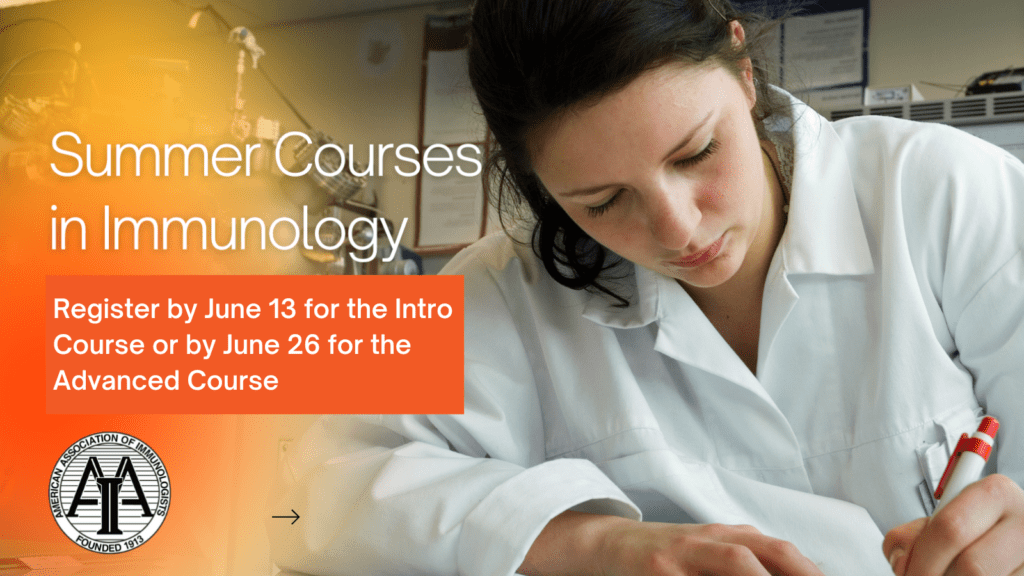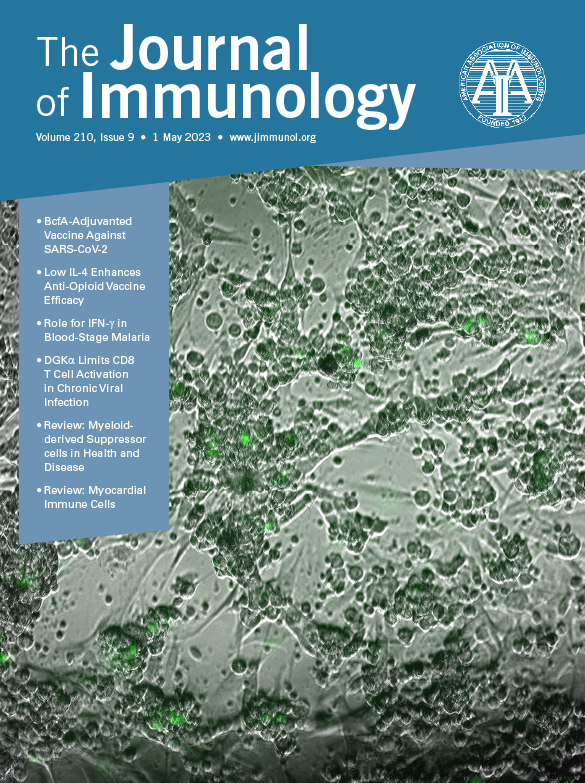
Friday, May 12, 2023
Friday, May 12, 2023 7:00 AM – 6:00 PM Exhibit Hall D
Registration, AAI Member Lounge, and Information Desk Open
- The Registration Desk is to just your right as you enter Exhibit Hall D.
- The AAI Member Lounge is in the front left corner of Exhibit Hall D.
- The Information Desk is just to your left as you enter Exhibit Hall D.
Friday, May 12, 2023 7:00 AM – 6:00 PM Room 203A
Speaker Ready Room Open
All speakers are required to go to the Speaker Ready Room at least 4 hours prior to the start of their session to ensure their presentation is properly uploaded and displays correctly. For details, visit the IMMUNOLOGY2023™ Podium Presentation Guidelines page.
Friday, May 12, 2023 7:00 AM – 10:00 PM East Overlook
KiddieCorp Child Care Room Open
Child care will be provided by KiddieCorp at no cost to attendees. For details, visit the IMMUNOLOGY2023™ Child Care page.
Friday, May 12, 2023 7:00 AM – 6:00 PM Room 103A
AAI Staff Office Open
Friday, May 12, 2023 8:00 AM – 9:30 AM Room 202B
12. AAI Business Meeting
Chair
- Loretta L. Doan, AAI Chief Executive Officer
AAI reports on the “state of the association” to its members at every AAI annual meeting. Members will hear from the CEO, the Secretary-Treasurer on the financial standing of AAI, the editors-in-chief of The Journal of Immunology (The JI) and ImmunoHorizons (IH) on the status of AAI journals, the chair of the Committee on Public Affairs on important public policy issues, and other items of interest for the membership.
(Coffee and light refreshments will be served)
Friday, May 12, 2023 8:00 AM – 9:30 AM Room 202B
12. AAI Distinguished Service Award Presentations
AAI President Mark M. Davis will introduce the awardees and present the awards during the AAI Business Meeting.
Chair
- Loretta L. Doan, AAI Chief Executive Officer
Award Recipients
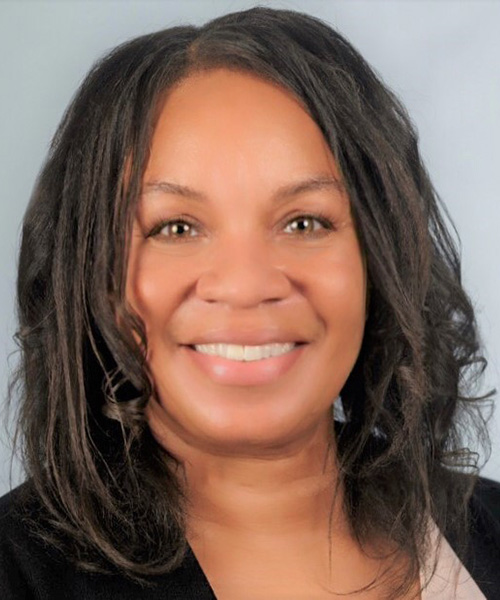
Cherié L. Butts
Biogen
For outstanding service as chair and member of the AAI Minority Affairs Committee, 2011–2017
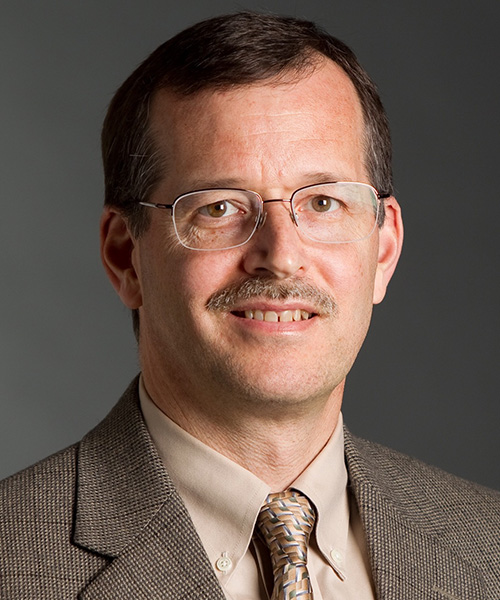
Clifford V. Harding
Case Western Reserve Univ.
For outstanding service as chair and member of the AAI Committee on Public Affairs, 2009–2016
The AAI Distinguished Service Awards recognize individuals for outstanding service to AAI and the immunology community.
Friday, May 12, 2023 8:00 AM – 9:30 AM Room 202B
12. Pfizer-Showell Award
This award recognizes the professional promise of an early career investigator (assistant professor or equivalent) by assisting the award recipient with registration for the AAI annual meeting to present their research. This award is supported through an endowment from Henry J. Showell and Pfizer, Inc.
Award Recipient
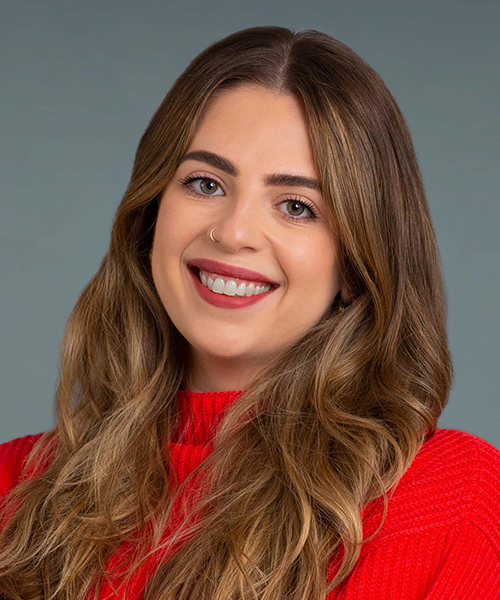
Carla Nowosad, Ph.D.
Assistant Professor
New York Univ.
AAI President Mark M. Davis will acknowledge the awardee during the AAI Business Meeting.
Friday, May 12, 2023 8:00 AM – 9:30 AM Room 202B
12. Lustgarten-Thermo Fisher Scientific Memorial Award
Established to honor the memory of AAI Member Dr. Joseph Lustgarten, this award is intended to advance the career of a mid-career scientist who attends the AAI annual meeting and presents an outstanding abstract specifically in the area of immune regulation. This award is generously supported by Thermo Fisher Scientific.
Award Recipient
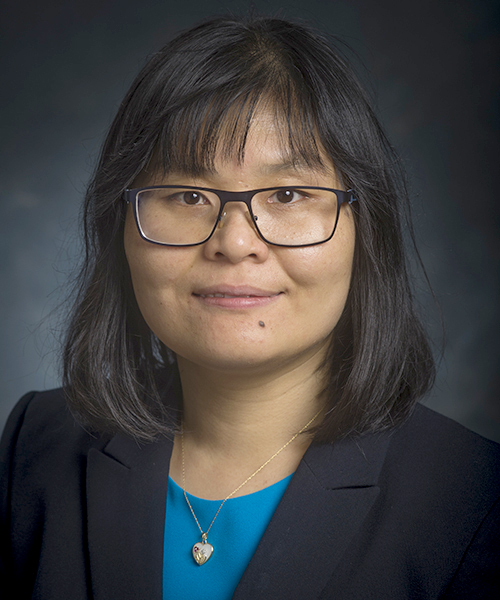
Jianmei W. Leavenworth, M.D., Ph.D.
Associate Professor
Univ. of Alabama at Birmingham, Heersink Sch. of Med.
AAI President Mark M. Davis will acknowledge the awardee during the AAI Business Meeting.
Friday, May 12, 2023 8:00 AM – 9:30 AM Room 202B
12. Lefrançois-BioLegend Memorial Award
Established to honor the memory of AAI Member Dr. Leo Lefrançois, this award is intended to advance the career of a trainee who attends the AAI annual meeting and presents an outstanding abstract specifically in the area of mucosal immunology. This award is generously supported by BioLegend and donations from friends and colleagues of Dr. Lefrançois.
Award Recipient
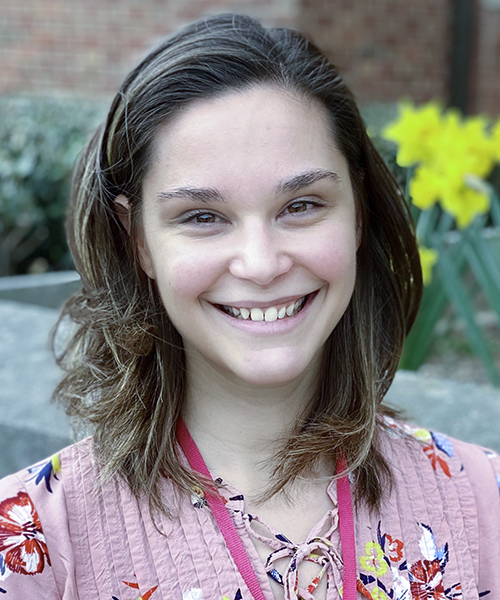
Alexandria Wells, Ph.D.
Postdoctoral Fellow
NIAID, NIH
AAI President Mark M. Davis will acknowledge the awardee during the AAI Business Meeting.
Friday, May 12, 2023 8:00 AM – 9:30 AM Room 202B
12. Chambers-Thermo Fisher Scientific Memorial Award
Established to honor the memory of AAI Member Dr. Cynthia Chambers, this award is intended to advance the career of an early career scientist who attends the AAI annual meeting and presents an outstanding abstract specifically in the area of cancer biology. This award is generously supported by Thermo Fisher Scientific.
Award Recipient
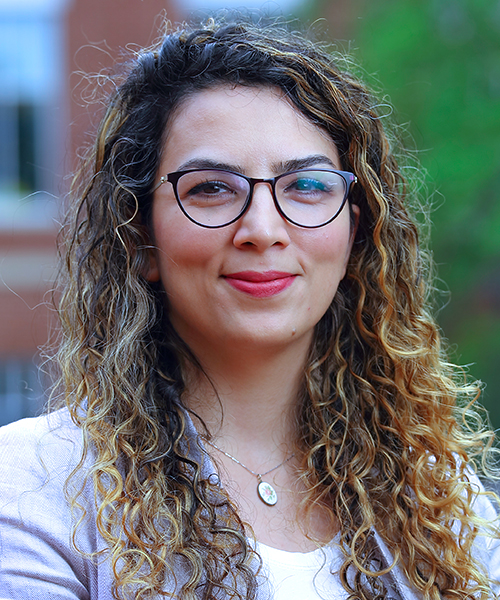
Sepideh Dolatshahi, Ph.D.
Assistant Professor
Univ. of Virginia Sch. of Med
AAI President Mark M. Davis will acknowledge the awardee during the AAI Business Meeting.
Friday, May 12, 2023 8:00 AM – 9:30 AM Room 202B
12. AAI-Thermo Fisher Trainee Achievement Awards
This award recognizes up to six promising trainees in the field of immunology. Selection is based on career promise and presentation of an outstanding first-author abstract selected for a Block Symposium. This award is generously supported by Thermo Fisher Scientific.
Award Recipients
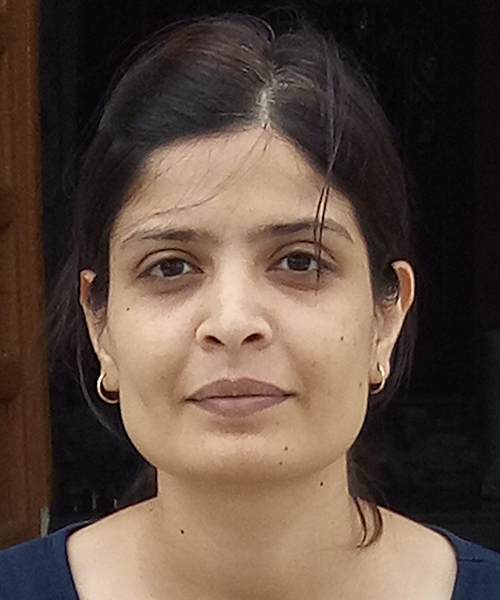
Tanushree Dangi, Ph.D.
Postdoctoral Fellow
Northwestern Univ.
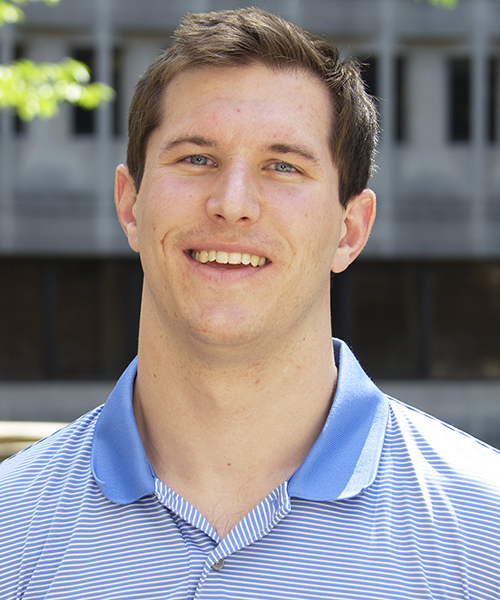
Andrew G. Harrison
Graduate Student
UConn Health
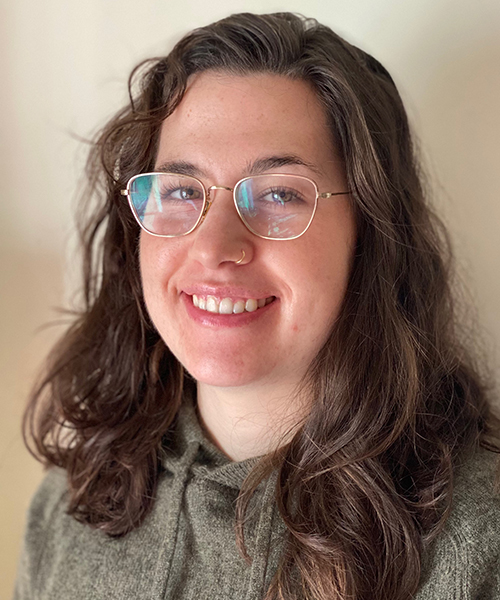
Fiona A. Raso
Graduate Student
Univ. of Massachusetts Med. Sch.
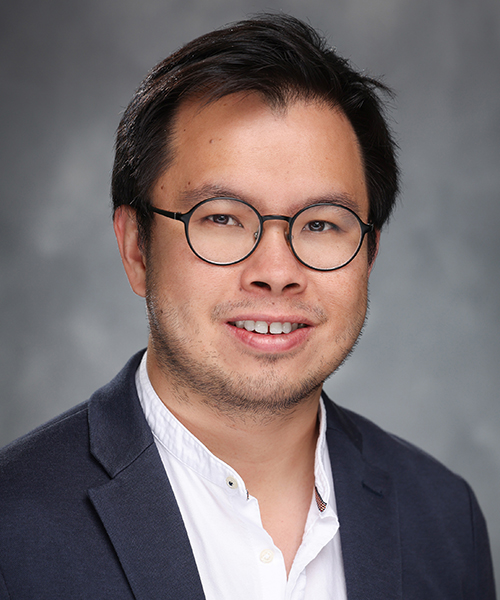
Chin Yee Tan
Graduate Student
Duke Univ. Sch. of Med.
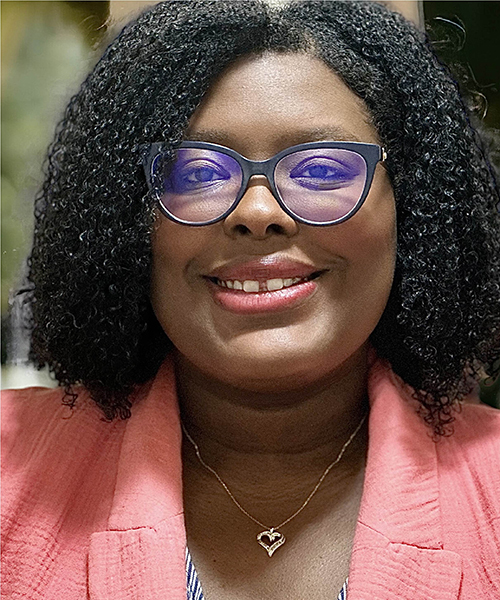
Sonya J. Wolf-Fortune, Ph.D.
Postdoctoral Fellow
Univ. of Michigan
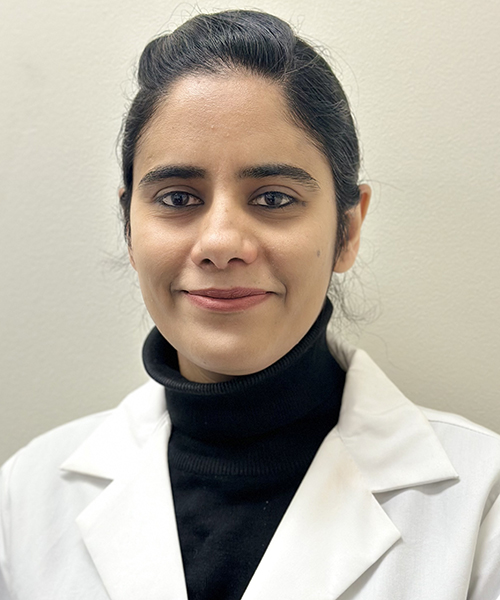
Insha Zahoor, Ph.D.
Postdoctoral Fellow
Henry Ford Health
AAI President Mark M. Davis will acknowledge the awardees during the AAI Business Meeting.
Friday, May 12, 2023 8:00 AM – 11:30 AM Ballroom A
13. Major Symposium A
Peripheral Neuroimmune Interactions
Chairs
- Daniel Mucida, HHMI, Rockefeller Univ.
- Esther Borges Florsheim, Arizona State Univ.
Speakers
- Daniel Mucida, HHMI, Rockefeller Univ., Neuro-immune interactions in the gut
- Esther Borges Florsheim, Arizona State Univ., Mast cell-derived lipid mediator promotes food aversion
- Caroline L. Sokol, Massachusetts Gen. Hosp., Neuroimmune circuits drive allergic immunity
- Jessica A. Osterhout, Univ. of Utah, Neural circuits of sickness behavior
- Felipe Almeida de Pinho Ribeiro, Washington Univ. Sch. of Med. in St. Louis, Sensory control of immunity
Friday, May 12, 2023 8:00 AM – 11:30 AM Ballroom B
14. Major Symposium B
Cell Death and Immunity: Caspases and Beyond
Chairs
- Francis K. Chan, Duke Univ.
- Sunny Shin, Univ. of Pennsylvania Perelman Sch. of Med.
Speakers
- Sunny Shin, Univ. of Pennsylvania Perelman Sch. of Med., Inflammasome-mediated anti-bacterial defense
- Megan H. Orzalli, Univ. of Massachusetts Chan Med. Sch., Activation and inhibition of cutaneous antiviral immunity
- Julie Magarian Blander, Weill Cornell Med., Phagocytic mode of non-canonical NLRP3 inflammasome activation: implications to pyroptosis and immunity
- Francis K. Chan, Duke Univ., Necroptosis in anti-viral immunity and tumor immunotherapy
- Weiping Zou, Univ. of Michigan, Ferroptosis in tumor immunity
- Kodi S. Ravichandran, Washington Univ. Sch. of Med. in St. Louis, Eating lessons from phagocytes and the implications to immunity
Friday, May 12, 2023 8:00 AM – 10:00 AM Room 202A
15. Block Symposium
Adaptive Responses at the Mucosa
Chairs
- Brian Kelsall, NIAID, NIH
- Kathryn A. Knoop, Mayo Clin.
Speakers
- Byunghyun Kang, NIAID, NIH, Segmented filamentous bacteria (SFB) drives enhanced T cell-dependent IgA and IgG2b responses in Peyer's patches
- Claudia A. Rivera, NIAID, NIH, Endogenous retroviruses act as a tonic signal for Treg induction and oral tolerance development
- Alexandria Wells, NIAID, NIH, Adaptive immunity to ancient retroelements controls the skin tissue threshold of activation
- Carla R Nowosad, New York Univ. Grossman Sch. of Med., Tunable dynamics of B cell selection in gut germinal centers
- Fiona Ann Raso, Univ. of Massactusetts Chan Med. Sch., Microanatomical lipid niche controls intestinal memory B cell migration and effector function
- Jung-Shan Hsu, Univ. of Alabama at Birmingham, Synergy between anti-commensal antibodies and IL-10 in gut homeostasis and disease
- Talia Raitt Cheifetz, Mayo Clin., Premature Treg induction in early life results in FoxP3 instability post-weaning
- Kazuki Nagashima, Stanford Univ., Mapping the T cell repertoire to a complex defined gut bacterial community
Friday, May 12, 2023 8:00 AM – 10:00 AM Room 207A
16. Block Symposium
Approaches to Improve Vaccination and Immunotherapy Against Pathogens
Chairs
- Catarina E. Hioe, Icahn Sch. of Med. at Mount Sinai
- Luc Teyton, Scripps Res. Inst.
Speakers
- Eric Wang, MIT, Nanoparticle geometry, immune memory, and antigen presentation determine the cross-reactive antibody response against sarbecoviruses
- Jonah S. Merriam, NIAID, NIH, Genetic immunization with self-assembling SARS-CoV-2 Spike-HBsAg nanoparticles
- Noemia Lima, NIAID, NIH, Prime-boost immunization against COVID-19 with adenovirus-vectored or mRNA vaccines induces different phenotypes of memory B cells
- Sarah Sanchez, Feinberg Sch. of Med., Northwestern Univ., 4-1BB costimulation following mRNA vaccination improves CD8 T cell responses
- Vamsee Mallajosyula, Stanford Univ. Sch. of Med., Calibrating T cell help by antigen cross-linking as a universal vaccine platform against rapidly evolving pathogenic viruses
- Aaron P. Esser-Kahn, Univ. of Chicago, Modulating innate immune responses for improved vaccine tolerability and durability
- Jonothan A. Rosario-Colon, Louisiana State Univ. Hlth. Sciences Ctr., Universal Candida cell-surface-specific monoclonal antibodies protect mice against multidrug-resistant Candida auris bloodstream infections
- Kenna K. Nagy, Scripps Res. Inst., Therapeutic anti-glycan antibodies against antibiotic resistant Staphylococcus aureus
Friday, May 12, 2023 8:00 AM – 10:00 AM Room 101
17. Block Symposium
Cytokine & Chemokine Control of Cellular Immunity
Chairs
- Katherine Gallagher, Univ. of Michigan Med. Sch.
- Magali Noval Rivas, Cedars Sinai Med. Ctr.
Speakers
- Stephanie Ann Mills, Medical Univ. of South Carolina, IL-12 alters T-cell metabolism to augment anti-tumor immunotherapy
- Elizabeth M. Hill, Univ. of Maryland Sch. of Med., A novel heterodimer composed of IL-12p40 and CD5L promotes a unique cytokine profile from T cells
- Payam Fathi, Vanderbilt Univ., Central nervous system IL-17R expression influences weight gain by altering food-intake and fat-mass accumulation
- Howard H Zhang, NIAID/NIH, Studies in humans and mice reveal a critical role for CCR2 in trafficking of pDCs during infection with SARS-CoV-2
- Thacyana Teixeira de Carvalho, Cedars-Sinai Med. Ctr., IL-33 promotes cardiovascular lesions development in a mouse model of Kawasaki Disease
- Holly Marie Scott Algood, Vanderbilt Univ. Med. Ctr., IL-17 Receptor A protects against Helicobacter pylori-induced gastric cancer
- Sonya Wolf, Univ. of Michigan, Diabetic wound keratinocytes induce macrophage JMJD3-mediated Nlrp3 expression via IL1R signaling
- Megan Elisabeth Borregard, Univ. of Chicago, It takes a village: STATs control IE-CTL pathogenesis in Celiac Disease
Friday, May 12, 2023 8:00 AM – 10:00 AM Room 204ABC
18. Block Symposium
Epigenetic, Transcriptional, and Post-transciptional Regulation of Autoimmunity
Chairs
- Christpoher Scharer, Emory Univ. Sch. of Med.
- Laurence Morel, The Univ. of Texas Hlth. Sci. Ctr. at San Antonio
Speakers
- Jean A. Lee, Univ. of Chicago, Androgen Receptor regulates Ptpn22
- Phillip P. Domeier, Benaroya Res. Inst., Foxp3 exon 2 regulates keratinocyte-specific IgE and basophil extracellular traps in cutaneous autoimmune photosensitivity
- Charlotte Nicole Hill, Boston Children's Hosp., Harvard Med. Sch., IL2 signaling and Foxp1 expression maintain Treg identity in the absence of Foxp3
- Yuk Pheel Park, Univ Texas Hlth. Sci. Ctr. in San Antonio, Molecular mechanisms of PBX1 regulation of CD4+ T cell inflammatory phenotypes
- Nada Salem Alakhras, Indiana Univ. Sch. of Med., An IL-23/STAT4 axis regulates classical dendritic cell expansion and function in CNS autoimmunity
- James R. Rose, Emory Univ. Sch. of Med., Early peripheral B cells in inactive SLE are transcriptionally and epigenetically primed for T-dependent activation
- Rachel Elizabeth Sutton, Emory Univ. Sch. of Med., Impacts of the A20 protein polymorphism, rs2230926, in human B cells
- Daniel L. Seiler, Univ. of Lübeck, Germany, The impact of the often neglected second C5a receptor, C5aR2, on neutrophil-driven autoimmune diseases
Friday, May 12, 2023 8:00 AM – 10:00 AM Room 102AB
19. Block Symposium
Regulation of Immune Responses
Chairs
- Connie Krawczyk, Van Andel Inst.
- Steven Josefowicz, Weill Cornell Med.
Speakers
- Caitlin C. Zebley, St Jude Children's Res. Hosp., Conserved epigenetic hallmarks of T-cell age
- Michael Duane Powell, Emory Univ. Sch. of Med., Tissue-specific heterogeneity of human T follicular helper cells marked by unique transcriptomes and regulatory architecture
- Michael J. Bale, Weill Cornell Med., IKKa-mediated phosphorylation of Histone H3.3 localizes at loci associated with differentiation in CD4+ T cells
- Jin Gyu G. Cheong, Weill Cornell Med., Epigenetic memory of COVID-19 in innate immune cells and their progenitors
- Chao Chen, Emory Univ. Sch. of Med., Mitochondrial metabolic flexibility is critical for CD8 T cell anti-tumor immunity
- Erika M. Palmieri, NCI, NIH, Pyruvate Dehydrogenase operates as an intramolecular nitroxyl generator during macrophage metabolic reprogramming
- Ameeta Kelekar, Univ. of Minnesota, Novel function for gluconeogenic enzyme, FBP1, in T cell activation and expansion
- Wesley H. Godfrey, Johns Hopkins Univ. Sch. of Med., Inhibition of distinct glycolytic enzymes produces differential effects on CD4 T cell function
Friday, May 12, 2023 8:00 AM – 10:00 AM Room 206
20. Block Symposium
Technological Innovations in Immunology: Immune Responses and Tissue Microenvironments
Chairs
- Jeffrey Hubbell, Univ. of Chicago
- Sterling B. Ortega, Univ. of North Texas Hlth. Sci. Ctr.
Speakers
- Arnon Arazi, The Feinstein Inst. for Med. Res., Northwell Hlth., A novel method for studying intercellular networks: quantifying cellular cooperativity and inferring the extracellular signals driving it
- Claire E. Gustafson, Allen Inst. for Immunology, Tri-modal single cell (TEA-seq) profiling reveals a novel, epigenetically distinct T cell subset in children and global molecular reprogramming across age
- Lisa R. Volpatti, Univ. of Chicago, Engineered cytokines target atherosclerotic plaques and locally suppress inflammation
- Huy Dinh, Univ. of Wisconsin, Madison, Comparative single-cell transcriptome analysis informs early innate immune response in severe human burns
- Bruce A. Adams, 10x Genomics, An integrated reagent and multimodal analysis workflow to enrich and characterize peptide-specific CD8+T cells
- Niyati Jhaveri, Akoya Biosci., Multiomic spatial phenotyping of the tumor immune microenvironment at single cell resolution
- Paul Zdinak, Univ. of Pittsburgh Sch. of Med., CD4+ T cell epitope identification de novo
- Tim Sindelar, Canopy Biosci., Spatial immunoprofiling of tissue sections with ChipCytometry™
Friday, May 12, 2023 8:00 AM – 10:00 AM Room 207B
21. Block Symposium
Transplant Immunology: from Alloreactivity to Immunoregulation
Chairs
- Jonathan Bromberg, Univ. of Maryland, Baltimore
- Maria-Luisa Alegre, Univ. of Chicago
Speakers
- Julia Miranda R. Bazzano, Emory Univ., Gm2a as a novel regulator of CD8+ T cell threshold of activation in transplantation
- Erik H. Koritzinsky, Cleveland Clin. Lerner Res. Inst., Allograft TLR9 is required for endogenous donor-reactive memory CD8 T cell activation to mediate CTLA-4Ig resistant rejection of high-risk cardiac allografts
- Michael Nicosia, Cleveland Clin. Fndn., Water channel Aquaporin 4 is required for T cell activation
- Jennifer Brianne Allocco, Univ. of Chicago, Variegated levels of alloreactive T cell dysfunction in transplantation tolerance determine graft vulnerability to infection-triggered rejection
- Giorgio Raimondi, Johns Hopkins Sch. of Med., Solid organ and vascularized composite allotransplantation have distinct requirements for localized delivery of enhanced costimulation blockade to control rejection
- Young S. Lee, Univ. of Maryland Sch. of Med., Purine metabolic pathway regulates regulatory T cell stability and function
- Ping Zhang, Fred Hutchinson Cancer Res. Ctr., Type-1 regulatory T cells are critical for curative immunotherapy outcomes
- Jemma H. Larson, Univ. of Minnesota, Human CAR19 CD8+ iTreg exceed CAR19 CD8 CTLs both in suppressing GVHD lethality and eliminating CD19+ Nalm-6 lymphoma cells in vivo
Friday, May 12, 2023 8:00 AM – 10:00 AM Room 201
22. Block Symposium
Tumor Cellular Therapy
Chairs
- Gregoire Altan-Bonnet, NCI, NIH
- Tessa Bergsbaken, Rutgers New Jersey Med. Sch.
Speakers
- Adam Kenet, NCI, NIH, The 1000 mouse experiment: quantifying the variability of tumor response to CAR T cell therapy
- Emily Simon Rav, Univ. of Texas MD Anderson Cancer Ctr., Targeting CD70 using CAR NK cells to enhance NK cells cytolytic effect against osteosarcoma
- Kole R. DeGolier, Univ. of Colorado Anschutz Med. Campus, Antigen experience history directs distinct functional states of CD8+ CAR T cells during the anti-leukemia response
- Jennifer Cimons, Univ. of Colorado Anschutz Med. Campus, T-bet overexpression modulates CAR T cell effector functions
- Asmaa Mohamed, Geisel Sch. of Med., Dartmouth Col., CD4 depletion enhances the efficacy of Super2 IL-33 armored CAR T cell against solid tumors and leads memory formation of both endogenous and CAR T cells
- Menglin Cheng, Rutgers Sch. of Grad. Studies, Investigating tissue-resident memory T cell differentiation of CAR T cells reveals an unexpected role for CD69
- Jing Wang, Chinese Univ. of Hong Kong, Investigating the role of HDAC8 in CD4+ T cells
Friday, May 12, 2023 9:00 AM – 10:00 AM Room 209ABC
23. How to Convert Your CV into a Résumé
Speaker
- Derek J. Haseltine, Hertz Fndn.
For anyone seeking a job outside of academe, how you present yourself on paper is critical. A well-prepared résumé can make all the difference in securing that interview. The focus of this session will be on the important elements of a résumé, the differences between a résumé and the standard academic curriculum vitae, and the information needed to make a good impression. In this special career development session, attendees will be instructed in how to transform their CVs into professional résumés. Small breakout sessions for individual consulting will follow. Bring your CV!
Friday, May 12, 2023 9:00 AM – 1:00 PM Exhibit Hall D, Info Desk
Trainee Abstract and Poster Award Check Distribution
Recipients of Trainee Abstract and Trainee Poster Awards may pick up their award checks at the Information Desk, just inside Exhibit Hall D.
Friday, May 12, 2023 9:00 AM – 5:00 PM Room 305
AAI StoryBooth 2023: COVID-19 Stories
Bring your colleagues, mentors, collaborators, or friends to record your stories, shared experiences, and thoughts on how COVID-19 impacted your research, career, and life.
Please note that the booth will be closed every day from 12:00 PM – 1:00 PM for lunch.
Friday, May 12, 2023 9:30 AM – 4:30 PM Exhibit Hall D
Exhibit Hall Open
The Exhibit Hall at IMMUNOLOGY2023™ brings attendees and exhibitors together for three event-filled days of booth displays of products and services and educational workshops hosted by exhibiting companies. For details, visit the IMMUNOLOGY2023™ Exhibitors page and the IMMUNOLOGY2023™ Exhibitor Workshops page.
Friday, May 12, 2023 10:00 AM – 10:45 AM Exhibit Hall D, Room 1
24. Exhibitor Workshop: Luminex—A Diasorin Co.
Measuring Immune Activation with the Amnis® High-Throughput Imaging Flow Cytometers and Advanced Machine-Learning Analysis Tools
Presenter
- Brian Hall, Product Manager, Imaging Flow Cytometry
Imaging flow cytometry is an effective tool for identifying immune responses, including T cell and monocyte activation, and immune synapse formation. However, data analysis from these assays can require a high level of expertise in image analysis software, making it difficult for novice users to execute. Recent advancements in machine learning have dramatically improved the ability of immunologists to gain insights from their experiments. In this workshop, we will highlight the Amnis® AI Image Analysis Software and demonstrate how this powerful tool can be used to automatically identify critical cell phenotypes in your Amnis® ImageStream®X Mk II and FlowSight® Imaging Flow Cytometer ata sets.
Friday, May 12, 2023 10:00 AM – 10:45 AM Exhibit Hall D, Room 2
25. Exhibitor Workshop: 10x Genomics
Fast-Track Antigen Specific B and T Cell Discovery
Presenter
- Jose Jacob, Product Manager, Immune Profiling
B and T cells perform a vital function in the adaptive immune system, recognizing cognate antigens, and subsequently triggering an immune response against them. However, isolating antigen-specific B and T cells out of a complex sample with traditional techniques has proved challenging and time consuming for those in drug development. To solve this problem, we developed Barcode Enabled Antigen Mapping (BEAM) to enable easy identification and characterization of antigen-specific B or T cells.
Friday, May 12, 2023 10:00 AM – 10:45 AM Exhibit Hall D, Room 3
26. Exhibitor Workshop: Akoya Bio
Spatial Phenotyping: Rapid, Comprehensive Phenotyping for Immune Disorders
In this session, invited speakers will demonstrate how high-plex spatial phenotyping analyses are used to provide breakthrough insights into tissue immunology and immune system dysfunction. You will discover how the PhenoCycler® - Fusion System and the PhenoCode™ Discovery Panels enable a rapid workflow for ultra-high plex analysis of varied tissue samples. From applications in COVID pathology to single -cell cancer immunotherapy, find out more about Akoya’s solutions that are paving the path towards the identification of novel therapeutic biomarkers and improved patient outcomes.
Friday, May 12, 2023 10:15 AM – 12:15 PM Room 202B
27. Human Immunological Diseases and Pathologies: Current Standard of Care, Mechanisms of Action, and Unmet Needs
Sponsored by the AAI Clinical Immunology Committee
Chairs
- Erica L. Stone, GigaGen, AAI Clinical Immunology Committee Chair
- Thomas A. Wynn, Pfizer
Speakers
- Joanne L. Viney, Seismic Therapeut., New therapeutic approaches for dysregulated adaptive immunity
- John C. Cambier, Univ. of Colorado Anschutz Sch. of Med., Exploiting inverse agonism for therapy in autoimmunity: immune cell silencing without death
- Kristie M. Grebe, Anokion, Harnessing natural tolerance pathways in the liver to treat autoimmune diseases: evidence from KAN-101 for the treatment of celiac disease
- David M. Berman, ImmunoCore, TCR bispecific protein therapeutics to treat autoimmunity
This session will include talks on a variety of immune-driven disease states and describe disease pathogenesis, current treatments, and their shortfalls, where potential areas of improvement may be in new treatments, and next therapies on the horizon. Linking the bench to the clinic will be emphasized.
Friday, May 12, 2023 10:15 AM – 12:15 PM Room 207B
28. My Lab is Recruiting Postdocs: Policy Approaches to Address the Needs of Today’s Biomedical Research Workforce
Sponsored by the AAI Committee on Public Affairs
Chairs
- Peter E. Jensen, Univ. of Utah, AAI Committee on Public Affairs Chair
- Tullia C. Bruno, Univ. of Pittsburgh
Speakers
- Ericka Boone, Director, Div. of Biomed. Res. Workforce, NIH, Panelist
- Greg M. Delgoffe, Univ. of Pittsburgh, Panelist
In recent years, principal investigators have expressed increasing concern about the difficulty of recruiting and retaining postdoctoral researchers, particularly in academia. While the problem is multifactorial, challenges include inadequate compensation/benefits, lack of affordable housing, difficulties achieving work-life balance, and insufficient support for training and mental health. The availability of postdocs has been further reduced by the COVID-19 pandemic and related disruptions, which have sharply decreased the number of international graduate students studying in the United States, resulting in a smaller potential postdoc pool. These challenges, combined with the lack of certainty in achieving “success” when pursuing a career in academia, often lead graduate students to pursue non-academic jobs in industry or elsewhere. With half of U.S. postdocs financially supported by federal agencies, the National Institutes of Health (NIH) has established a Working Group to evaluate whether there is statistical evidence of this perceived postdoc shortage, assess the factors that may be causing it, and develop recommendations to facilitate recruitment and retention.
This session will feature a distinguished panel of speakers who will discuss the current state of the postdoc workforce, the reasons for a dearth of candidates applying for postdoc positions, and potential policy approaches to alleviate the strain on the biomedical research workforce. The formal presentations will be followed by an open mic period during which all members of the audience, in particular trainees, will be invited to ask questions and/or speak about their experiences.
Friday, May 12, 2023 10:15 AM – 12:15 PM Room 101
29. National Institute on Aging (NIA, NIH) Symposium
Mucosal Immunity, Microbiome, and Aging
Chairs
- Mulualem E. Tilahun, NIA, NIH
- Elizabeth J. Kovacs, Univ. of Colorado, Denver
Speakers
- Elizabeth J. Kovacs, Univ. of Colorado, Denver, Inflammaging, burn trauma, and the gut-lung axis
- Marta Rodriguez-Garcia, Tufts Univ. Sch. of Med., Aging compromises neutrophil-mediated innate protection against HIV in the human female genital tract
- Noah W. Palm, Yale Sch. of Med., Mapping uncharted landscapes of host-microbiota communication
- Yanjiao Zhou, Univ. of Connecticut Sch. of Med., The gut microbiome and immune responses in young and old mice on an intermittent-fasting diet
Friday, May 12, 2023 10:15 AM – 12:15 PM Room 206
30. Block Symposium
CD8+ T Cell-mediated Immunity to Viral Infections
Chairs
- Emily Hemann, Ohio State Univ. Col. of Med.
- Susan Kaech, Salk Inst. for Biol. Studies
Speakers
- Madison R. Mix, Univ. of Iowa, Acute and chronic viral infection generate brain-resident memory T cells with distinct phenotypic, functional, spatial, and metabolic profiles
- Jennifer Berger, Univ. of Colorado Anschutz Med. Campus, Bystander CD8+ T cells are important antiviral effectors in the brain
- Katheryn M. Wininger, Mayo Clin. Grad. Sch. of BioMed. Sci., Dissecting the role of H-2Db class I molecule in the development of brain atrophy during Theiler's murine encephalomyelitis virus (TMEV) infection
- Anna-Maria Globig, Salk Inst. for Biol. Studies, Adrenergic receptors regulate T cell differentiation in viral infection and cancer
- Lisbeth Disla, Ohio State Univ., Interferon-lambda modulates dendritic cell IL-10 production and CD8 T cell immunity during influenza A virus infection
- Xinran Wang, Univ. of Alabama at Birmingham, Regulatory maturation of lung cDC1 is required for resolution of Influenza infection
- E. Lake Potter, NIAID, NIH, Serial intravascular staining reveals altered T cell trafficking in aged and SIV+ rhesus macaques
Friday, May 12, 2023 10:15 AM – 12:15 PM Room 201
31. Block Symposium
Findings from Amphibians, Fish, and Chickens to Mammals
Chairs
- Crystal L. Loving, ARS, USDA
- Ro Miller, Univ. of New Mexico
Speakers
- Jordan M. Sampson, Univ. of New Mexico, Evolution of the structure and organization of the mammalian immunoglobulin loci
- Luke S. Hebert, Univ. of Texas, Austin, Characterization of the B cell receptor repertoire and discovery of new immunoglobulin genes in the domestic ferret
- Aryana Razmara, Univ. of California, Davis, Single cell and genomic profiling of PBMC-expanded NK cells in first-in-dog clinical trial of allogeneic adoptive NK cell therapy for dogs with cancer
- Channakeshava Sokke Umeshappa, Dalhousie Univ., Canada, Computational prediction of highly conserved CD8+ and CD4+ T cell epitopes in bluetongue virus: A promising data for developing broad-spectrum bluetongue vaccine
- Judy L. Cannon, Univ. of New Mexico, Benefits of being big: how a T cell response can occur as rapidly in a human as a mouse
Friday, May 12, 2023 10:15 AM – 12:15 PM Room 202A
32. Block Symposium
Immunometabolism and Anti-tumor Immunity
Chairs
- Jeffrey C. Rathmell, Vanderbilt Univ.
- Kyle K. Payne, Rutgers Cancer Inst. of New Jersey
Speakers
- Paola Cappello, Univ. of Turin, Italy, Iron-overload affects anti-tumor immune response in pancreatic cancer
- Joanina K. Gicobi, Mayo Clin., Resilient CD8+ T cells maintain a high cytotoxic capacity by balancing ROS and energy needs via ME1 upregulation
- Paramita Chakraborty, Medical Univ. of South Carolina, Sphingosine 1-phosphate / Acetyl CoA Carboxylase1 axis regulates the differentiation and function of tumor-associated myeloid-derived suppressor cells
- Hai Huang, Feinstein Inst. for Med. Res., Pre-operative exercise therapy suppresses colorectal liver metastases by triggering anti-tumor trained immunity of Kupffer cells
- Chuan-Teng Liu, China Med. Univ. Hosp., Taiwan, Immunometabolic modulation by targeting UCP2 and IL-17A boost anti-tumor immunity against pancreatic cancer
- Emilie L. Fisher, Vanderbilt Univ. Med. Ctr., Improving anti-tumor CD8+ T cell function through manipulating glutamine metabolism
- Meng-Han Wu, Univ. of Colorado Anschutz Med. Campus, Modulating T cell metabolism to improve CAR-T cell therapy success
Friday, May 12, 2023 10:15 AM – 12:15 PM Room 204ABC
33. Block Symposium
Non-immune Therapy in Cancer
Chairs
- Arya Biragyn, NIA, NIH
- Rana Herro, Cincinnati Children’s Hosp. Med. Ctr.
Speakers
- Jiandong Huang, The Univ. of Hong Kong, Attenuated Salmonella blocks cancer metastasis by activating NK cells in an IFN-γ-dependent manner
- Kaiting Yang, Univ. of Chicago, Zinc-c-di-AMP nanoparticles target and suppress tumors via endothelial STING activation and tumor associated macrophage reinvigoration
- Jugal Kishore Das, Texas A&M Univ. Hlth. Sci. Ctr., Engineered live attenuated bacteria producing 5-hydroxyindole remodels heterogeneous tumor microenvironment and promotes antitumor immunity
- Soha M. Kazmi, NIAID, NIH, Global inhibition of Ly-49/MHC-I interactions by anti-MHC-I augments innate and adaptive immunity against cancer metastasis
- Lei Wang, Univ. of Florida Col. of Med., Proteolysis-targeting chimera against NR4A1 for cancer immunotherapy
- Sharmila Nair, Univ. of Louisville, Advancing Immunovirotherapy with Zika virus to treat high-grade brain tumors
- Raziye Piranlioglu, Brigham and Women's Hosp. and Harvard Med. Sch., Assessment of the impact of oncolytic virotherapy on the immunopeptidome profile of tumor by utilizing GEMM derived immunocompetent GBM models
- Sevasti Karaliota, Frederick Natl. Lab. for Cancer Res., Synergy of heterodimeric IL-15 immunotherapy and a fatty acid metabolism modulator enhances intratumoral lymphocyte metabolism and eradicates EO771 murine breast tumors
Friday, May 12, 2023 10:15 AM – 12:15 PM Room 207A
34. Block Symposium
Regulation of Cytotoxic Lymphocytes During Infection
Chairs
- Christopher Jondle, Western Michigan Univ. Homer Stryker Sch. of Med.
- Laura Snell, Indiana Univ. Sch. of Med.
Speakers
- William D. Green, Univ. of North Carolina at Chapel Hill, Pinpointing molecular regulators of CD8 T cell differentiation through multimodal single-cell profiling
- Andrea C. Pichler, NIAID, NIH, PI3Kδ: a key driver of effector differentiation under conditions of T cell exhaustion
- Devin M. Jones, Ohio State Univ. Col. of Med., Aiolos restrains acquisition of a cytotoxic program by CD4+ T cells
- Namita Rout, Tulane Univ. Sch. of Med., Impaired IL-17 and cytotolytic responses to influenza vaccine antigens in aging nonhuman primates
- Kunal Dhume, Univ. of Central Florida, Direct and indirect type I interferon signaling regulates eomes-driven Th1-responses against influenza virus
- Cassandra R. Winter, Univ. of Washington Sch. of Med., The role of bystander activation among CD8αα T cells in controlling Mycobacterium tuberculosis infection
- Mohamed Khalil, Medical Col. of Wisconsin, Single cell transcriptomes from HCMV+ donors reveal a unique NKG2CHigh subset that represents true memory NK cells
- Shaon Sengupta, Perelman Sch. of Med., Univ. of Pennsylvania, Role of NK cells in circadian regulation of lung inflammation
Friday, May 12, 2023 10:15 AM – 12:15 PM Room 102AB
35. Block Symposium
Regulators of Lymphocyte Fate and Activation
Chair
- Jennifer Cannons, NIAID, NIH
Speakers
- Peter Pioli, Univ. of Saskatchewan, Canada, Thymus antibody-secreting cells possess an interferon-responsive gene signature and are comprised of a CD154(CD40L) dependent plasmablast population
- Doureradjou Peroumal, Univ. of Pittsburgh Sch. of Med., Kidney disease impairs B cells response against infection via inhibiting germinal center formation and antibody titers
- Roy Neal Mulpur, Emory Univ. Sch. of Med., CRISPR/Cas9 screen of B cell differentiation pathways
- Marie Pineault, Université Laval, Canada, The mutation PTPN6Ala455Thr causing pulmonary emphysema affects B cell populations and causes spontaneous pulmonary tertiary lymphoid tissue formation
- Michela Locci, Perelman Sch. of Medicine, Univ. of Pennsylvania, IL-12 drives the differentiation of human T follicular regulatory cells
- Dominic P. Golec, NIAID, NIH, PI3Kδ shapes Th2 lineage restriction through coordination of IL-2 signaling, Foxo1 inactivation and epigenetic remodeling
- Danielle Alexandria Chisolm, NIAMS, NIH, PAXBP1 serves as a novel regulator of t helper specification by restraining the type 1 program
- Jessica A. Gaevert, St. Jude Childrens Res. Hosp., Characterization, functional validation, and analysis of the cross-reactive T cell repertoire in the context of heterosubtypic influenza A virus infection
Friday, May 12, 2023 10:30 AM – 12:30 PM Room 210
How to Convert Your CV into a Résumé: Individual Consulting
This follow-on to the popular How to Convert Your CV into a Résumé career-development session provides the opportunity for one-on-one consultation. Bring your CV!
Friday, May 12, 2023 11:00 AM – 1:00 PM Room 209ABC
36. Immunology Teaching Interest Group: Enhancing Your Immunology Teaching
Sponsored by the AAI Education Committee
Chairs
- Sumali Pandey, Minnesota State Univ., Moorhead
- Damian L. Turner, Williams Col.
Speakers
- Viviane Boaventura, Oswaldo Cruz Fndn., Fed. Univ. of Bahia, Brazil, ImmunoAlvo board game for dynamic teaching of immunology
- William H. Carr, Medgar Evers Col., CUNY, Easing the pain of group work with an ice-breaker activity: "a case in point: from active learning to the job market"
- Nadeem Fazal, Chicago State Univ. Col. of Phrm., A case for teaching basic immunology through scientific journalism: lesson taught by a coronavirus went viral!
- Lindsey D. Hughes, Yale Sch. of Med., A perfect fit: 3D-printed kit to teach students principles of antigen-antibody recognition and herd immunity
Breakout Session Leaders
- Vitaly V. Ganusov, Univ. of Tennessee, and Julie M. Jameson, California State Univ., San Marcos, Use of the AAI curriculum recommendations in an undergraduate immunology course
- Tomas Helikar, Univ. of Nebraska, Lincoln, Louis B. Justement, Univ. of Alabama at Birmingham, Sumali Pandey, Minnesota State Univ., Moorhead, and Rebekah T. Taylor, Frostburg State Univ., Modeling immunological networks in an educational setting using Cell Collective*
- Aimee Pugh-Bernard, Univ. of Colorado Anschutz Med. Campus, The use and creation of analogies as a teaching tool for understanding immunology
- Rebecca Rivard, Gwynedd Mercy Univ., Immune Battle: use of a board game to help improve student understanding of immune function
Are you looking for new ideas or strategies to enliven and improve your teaching? If so, please join us for this special interest group, which will focus on strategies that instructors can use to successfully convey immunology concepts to students at the undergraduate and graduate levels. This session will explore teaching strategies through talks and structured breakout discussion groups. Current educators, new faculty, and trainees with an interest in teaching are welcome.
*Bring your laptop to get the most out of this breakout session!
Friday, May 12, 2023 11:15 AM – 12:00 PM Exhibit Hall D, Room 1
37. Exhibitor Workshop: Miltenyi Biotec
Spatial Characterization and Deep Phenotyping of CD8+ Tumor-Infiltrating Lymphocytes in the Tumor Microenvironment
Presenter
- Elvira Criado-Moronati, Team Coordinator in the Personalized Immunotherapy R&D Department
The success of adoptive cell therapy (ACT) using tumor-infiltrating lymphocytes (TILs) depends on the presence of a sufficient number of tumor-reactive T cell in the final cell product. To enhance the efficacy of ACT, it is necessary to increase the frequency of these cells by introducing an enrichment prior to their ex vivo expansion. The use of surface markers based on a tumor-reactive T cell phenotype is an appealing option, as it is independent of the target an tigen. In this workshop, we will demonstrate how MICS (MACSimaTM Imaging Cyclic Staining), our multiplexed imaging technology, can be utilized to phenotypically characterize TILs in tumor tissues. By using a panel of 98 antibodies, we analyzed the tumor microenvironment (TME) and the phenotype of CD8+ TILs in close proximity to tumor cells, which could indicate tumor recognition. Our results confirmed the presence of several cell subsets composing the TME and their spatial distribution in the tissue. CD8+ TILs located near tumor cells expressed exhaustion markers associated with tumor reactivity, such as CD137, PD1, CD39, ICOS, and CD103. Further characterization using flow cytometry and single-cell RNA sequencing confirmed the presence of exhausted CD8+ TILs that co-expressed these markers. We will demonstrate that cutting-edge technologies like MICS can support the advancement of immunotherapies by providing a comprehensive characterization of the TME and a platform for screening T cell markers at protein level to develop enrichment strategies.
Friday, May 12, 2023 11:15 AM – 12:00 PM Exhibit Hall D, Room 2
38. Exhibitor Workshop: Luminex—A Diasorin Co.
Designing Custom Multiplex Assays to Support Vaccine Development
Presenters
- Joanna Dragich, Ph.D., Scientist III, Applications & Development
Vaccine development requires precision and reproducibility at every step, from drug product characterization to serotype monitoring, lot-release testing, and post-market surveillance. Using the power of xMAP multiplexing technology, these parameters and more can be evaluated together in a single platform. From early discovery r esearch to clinical diagnostics, xMAP technology can be applied to meet your research needs. This workshop will discuss how to approach designing custom multiplex assays for vaccine development.
Friday, May 12, 2023 11:15 AM – 12:00 PM Exhibit Hall D, Room 3
39. Exhibitor Workshop: MilliporeSigma
Multi-Platform Biomarker Analysis with MILLIPLEX® Multiplex Immunoassays and Single Molecule Counting (SMC®) Technology for Ultrasensitive Protein Detection
Presenter
- Anthony J. Saporita, Ph.D., R&D Manager
Multiplex immunoassays have been critically important for profiling the expression of a wide variety of immunomodulatory proteins, including cytokines, chemokines, growth factors, and complement proteins from small volumes of biological fluid. This presentation will introduce several new immunoassay products from MilliporeSigma and highlight the advantages of our MILLIPLEX® kits for lot-to-lot consistency, sensitivity, flexibility, and reproducible sample measurement. We will also showcase high-sensitivity SMC® immunoassays for the detection of low-abundance cytokines.
Friday, May 12, 2023 12:00 PM – 2:15 PM West Salon GH
40. Careers Roundtables and Speed Networking Session
Sponsored by the AAI Minority Affairs Committee
Generously supported by the Department of Immunobiology, Yale School of Medicine
Chair
- Tonya J. Webb, Univ. of Maryland Sch. of Med., AAI Minority Affairs Committee Chair
Career building and networking skills have never been more crucial to ensure success for trainees and early career scientists, including those traditionally underrepresented in biomedical research. At the session, take advantage of the opportunity to meet in small-group format with established immunologists and others to hear how they have handled the career challenges you now face and learn what they believe will work for you today. Then practice networking in a relaxed environment offering a structured networking exercise and personalized feedback on communicating your scientific interests/objectives most effectively. Scientists and trainees of all backgrounds are encouraged to attend!
Registration Fee: $30 (includes lunch)
Discussion Topics
Grad Student: Finding a Mentor, Setting Sights on Postdoc Training
- Curtis Henry, Emory Univ.; Beth Tamburini, Univ. of Colorado
- Julie Mirpuri, UT Southwestern Med. Ctr.; Henrique Serezani, Vanderbilt Univ.
- Joseph Larkin III, Univ. of Florida; Robin Stephens, Rutgers Univ.
Navigating Challenges Unique to International Graduate Students and Postdocs
- Adriana Larregina, Univ. of Pittsburgh; Mercedes Rincon, Univ. of Colorado
- Craig Maynard, Univ. of Alabama at Birmingham; Lili Sanmarco, Seismic Therap.
Postdoc: Finding a Mentor, Setting Sights on a Faculty Position
- Luis Montaner, The Wistar Inst.; Charlotte Vines, Univ. of Texas at El Paso
- Harlan Jones, Univ. of North Texas; Antonieta Guerrero-Plata, Louisiana State Univ.
- Maria-Luisa Alegre, Univ. of Chicago; Jeniffer Hernandez, Keck Graduate Inst.
Junior Faculty: Preparing for Promotion and Tenure
- Elizabeth Kovacs, Univ. of Colorado; Carla Rothlin, Yale Sch. of Med.
- Jose Conejo-Garcia, Duke Univ.; Tonya Webb, Univ. of Maryland Sch. of Med.
- Robert Binder, Univ. of Pittsburgh
Maintaining Research Productivity at a Primarily Undergraduate Teaching Institution
- Michael Opata, NIAID, NIH; Jennifer Punt, Univ. of Pennsylvania
Academia or Industry: How to Decide (or Switch Sides)
- Louise D’Cruz, BD Biosci.; Stephen Haley, Immudex
- Jonathan Deane, Kumquat Biosci.; Barbara Sullivan, Ultragenyx
- Robert Balderas, BD Biosci.; Kiyomi Komori, Kinevant Sciences
- Cherié Butts, Biogen; Sadiye Rieder, Horizon Therapeut.
- Steven Crampton, Janssen Pharma.; Isharat Yusuf, Gossamer Bio
- Frann Antignano, STEMCELL Technol.; Rashade Haynes II, Bristol Myers Squibb
Government Agency Careers (including Grant Review)
- Swinburne Augustine, EPA; Kelly Hudspeth, NIAID, NIH
- Timothy Gondre-Lewis, NIAID, NIH; Anuja Mathew, NIAID, NIH
- Thomas Conway, NIAID, NIH; Vanitha Raman, NIAID, NIH
Beyond the Bench Science Careers:
- Entrepreneurship
- Eduardo Davila, Univ. of Colorado; Amber Miller, Fortis Life Sci.
- James Lillard, Morehouse Sch. of Med.; Aliyah Weinstein, Fortis Life Sci.
- Nonprofits/Foundations
- Derek Haseltine, Hertz Fndn.; Thandi Onami, Bill and Melinda Gates Fndn.
- Science Policy
- Emily Kansler, AAI; Jacob Schumacher, AAI; Yvette Seger, FASEB
- Scientific Patent Law
- Jaconda Wagner, Wagner Law LLC; Joseph Hsiao, Officeof the Solicitor, U.S. Dept. of the Interior
- Scientific Publishing /Science Writing
- Adriana Benavides, Am. Assoc. for Cancer Res.; Charles Richter, AAI
- Nicole Beauchamp, AAI; Emily Arturo, AAI
Friday, May 12, 2023 12:30 PM – 1:15 PM Exhibit Hall D, Room 1
41. Exhibitor Workshop: Miltenyi Biotec
Unlock the Full Potential for Your CAR NK Cells
Presenter
- Jonathan Druge, Jr., Immuno-oncology Applications
Natural killer (NK) cells are a promising tool in the fight against cancer. Allogeneic NK cells derived from suitable donors, showed high-clinical safety and impressive clinical outcomes in patients with acute myeloid leukemia (AML). Further engineering of NK cells with chimeric antigen receptors (CARs) bolsters their antitumor activity and mediates the specific killing of tumor cells. But despite substantial advances, unlocking the full therapeutic potential of CAR NK cells requires investigating their limited persistence, proliferation, and impaired in vivo antitumor activity. As a longtime trusted partner for cell and gene therapy solutions, Miltenyi Biotec is committed to advancing the CAR NK field. During this workshop, we will showcase how our most recent product developments and complete workflows can effectively advance your research and generate scalable and reproducible results. Get insight on how to isolate functional NK cells directly from your blood products, boost your lentiviral transduction efficiency, easily activate and expand your NK cells, and streamline your in-process and quality control (IPC/QC) methods with our latest flow analysis solutions. Join us and unlock the full potential of your CAR NK cells.
Friday, May 12, 2023 12:30 PM – 1:15 PM Exhibit Hall D, Room 2
42. Exhibitor Workshop: BD Biosciences
FlowJo™ Software for High-Dimensional Analysis: New Approaches to Expedite Discovery
Presenter
- John Quinn Ph.D., Director of Science and Product Development, BD Bioinformatics – FlowJo
Join us for a deep dive into algorithmic analysis of Flow Cytometric data. In this talk we will begin with an introduction to the terms and types of algorithms used in computational analysis. We will then push the boundaries by introducing a set of new tools and approaches designed specifically to make clustering results easier to understand and propagate results to future experiments. We will illustrate this functionality within the framework of a BD® Research Cloud workflow, demonstrating how the full workflow can be streamlined and the results shared easily with collaborators.
Friday, May 12, 2023 12:30 PM – 1:15 PM Exhibit Hall D, Room 3
43. Exhibitor Workshop: Bio-Rad Laboratories
Improve Your Flow Data in 10 Easy Steps
Presenters
- Mike Blundell, Ph.D., Global Product Manager
- Sharon Sanderson, Ph.D., Global Product Manager
Immunology often relies on flow cytometry to provide the latest data, but how can you obtain high quality data before sharing it with your peers and the scientific community? As flow cytometry experts, Bio-Rad™ understands the many challenges faced when trying to obtain good quality data and a clear result to answer your scientific question. During this presentation, you will learn some top tips for improving your flow data with a focus on immunophenotyping panels. Using example data, including Bio-Rad’s new StarBright Dyes™ , we will demonstrate that, with considered panel design, careful sample preparation, use of the most appropriate reagents, and adherence to best practices , you can improve your flow data to get clear result. Join us to find out how our ten quick and simple concepts will improve your flow cytometry.
Friday, May 12, 2023 12:30 PM – 1:30 PM Room 202A
44. AAI-BioLegend Herzenberg Award Presentation and Lecture
Generously supported by BioLegend
AAI President Mark M. Davis will introduce the awardee and present the award immediately prior to Dr. Crotty’s lecture.
Chair
- Gary A. Koretzky, Cornell Univ. and Weill Cornell Med., AAI Past President
Award Recipient
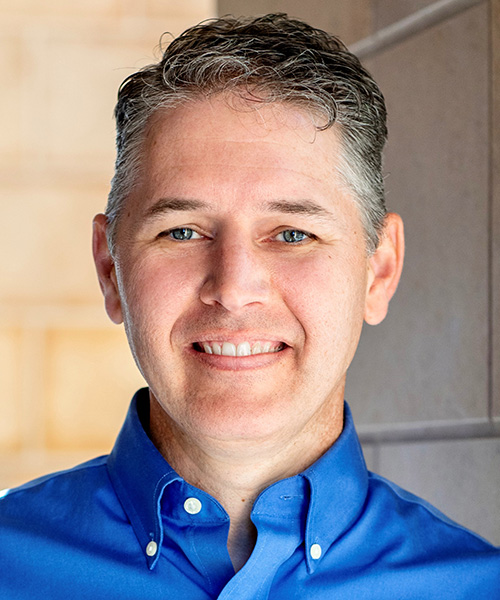
Shane Crotty
La Jolla Inst. for Immunology
Long-lived and high-quality antibody and memory B cell responses regulated by Tfh cells and germinal centers
The AAI-BioLegend Herzenberg Award recognizes outstanding research contributions to the field of immunology in the area of B cell biology.
Friday, May 12, 2023 12:30 PM – 2:30 PM Room 207B
45. Immunological Approaches to (Re)emerging and Global Zoonotic Threats
Sponsored by the AAI Veterinary Immunology Committee
Chair
- Janice C. Telfer, Univ. of Massachusetts, Amherst, AAI Veterinary Immunology Committee Chair
Speakers
- Joan Lunney, USDA, ARS, The pig as a biomedical model: importance for immunity, disease, and vaccine research
- Rudra Channappanavar, Oklahoma State Univ. Col. of Vet. Med., Role of dysregulated immunity in the pathogenesis of coronavirus infections
- Bronwyn M. Gunn, Washington State Univ. Col. of Vet. Med., Leveraging a systems serology approach to define antibody-mediated mechanisms of immunity against zoonotic viral infection
- Christopher A. Hunter, Univ. of Pennsylvania Sch. of Vet. Med., Understanding how mRNA vaccines promote CD8+ T cell responses
The modern hyper-mobile world, climate change, and increased contact between wildlife and humans has led to the increased incidence of emerging infectious disease (EID), which is defined as an infectious disease in which incidence has increased in the past 20 years and has potential for increasing further in the future. It is estimated that more than six out of every 10 known EIDS in people can be spread from animals, and three out of every four newly detected EIDs in people are transmitted from animal reservoirs. It is thus important to understand the pathogen–host immune response in all species. This symposium will highlight the study of swine as an important biomedical model species and reservoir as well as strategies to improve vaccines designed to combat EIDs in all species.
Friday, May 12, 2023 12:30 PM – 2:30 PM Room 202B
46. German Society for Immunology (DGfI) Symposium
Immune Competence in Tissues
Chairs
- Dietmar Zehn, Tech. Univ. of Munich, Germany
- Georg Gasteiger, Max-Planck Res. Group for Systems Immunology, Univ. of Würzburg, Germany
Speakers
- Dietmar Zehn, Tech. Univ. of Munich, Germany, Dynamics and maintenance of resident CD8+ T cells in the intestine
- Georg Gasteiger, Max-Planck Res. Group for Systems Immunology, Univ. of Würzburg, Germany, Tissue niches of resident lymphocytes
- Wolfgang Kastenmüller, Max-Planck Res. Group for Systems Immunology, Univ. of Würzburg, Germany, Spatiotemporal orchestration of cellular immunity
- Christine S. Falk, Medizinische Hochschule Hannover, Germany, T and NK cell chimerism in human lung transplantation
Friday, May 12, 2023 12:30 PM – 2:30 PM Room 101
47. International Society of Neuroimmunology (ISNI) Symposium
Neuroimmune Interactions in CNS Development, Repair, and Disease
Chairs
- Francisco J. Quintana, Harvard Med. Sch.
- Nicola J. Allen, Salk Inst. for Biological Studies
Speakers
- Nicola J. Allen, Salk Inst. for Biological Studies, Astrocyte-neuron interaction in health and disease
- Michael V. Sofroniew, Univ. of California, Los Angeles, Diverse astrocyte roles in CNS innate immunity
- John R Lukens, Univ. of Virginia, SYKO mode: SYK is a key regulator of neuroprotective immune responses in Alzheimer’s disease
- Francisco J. Quintana, Harvard Med. Sch., Regulatory cell interactions in CNS inflammation
Friday, May 12, 2023 12:30 PM – 2:30 PM Ballroom B
48. Society for Mucosal Immunology (SMI) Symposium
Protecting the Barrier from Invaders
Chairs
- Gretchen E. Diehl, Mem. Sloan Kettering Cancer Ctr.
- Kathryn A. Knoop, Mayo Clin.
Speakers
- Gretchen E. Diehl, Mem. Sloan Kettering Cancer Ctr., Commensal regulation of gut immunity to pathogens
- Kathryn A. Knoop, Mayo Clin., Early life protection in the intestine
- Amanda M. Jamieson, Brown Univ., Polymicrobial lung infections
- Nichole R. Klatt, Univ. of Minnesota Med. Sch., Vaginal microbiome and HIV infection
Friday, May 12, 2023 12:30 PM – 2:30 PM Room 102AB
49. Society for Natural Immunity (SNI) Symposium
NK Cells and ILCs in Cancer
Chairs
- Todd A. Fehniger, Washington Univ. Sch. of Med. in St. Louis
- Mariapia A. Degli-Esposti, Monash Univ., Australia
Speakers
- Karl-Johan Malmberg, Univ. of Oslo, Norway, Transfer learning reveals NK cell states in the tumor microenvironment
- John B. Sunwoo, Stanford Univ. Sch. of Med., CD103+ NK cells and cancer
- Mariapia A. Degli-Esposti, Monash Univ., Australia, Regulatory roles of NK cells in infection and cancer
- Heather M. McGee, City of Hope Nat. Med. Ctr., Radiation-induced innate lymphoid cell activation in the liver tumor microenvironment
Friday, May 12, 2023 12:30 PM – 2:30 PM Room 201
50. Block Symposium
Cytokines and Vaccines for the Treatment of Cancer
Chairs
- Jenny Jiang, Univ. of Pennsylvania
- Michelle Krogsgaard, New York Univ. Sch. of Med.
Speakers
- Kyle J. Kaeo, Johns Hopkins Univ., Engineering antibody fusion proteins for targeted intracellular therapeutic delivery
- Max Mu Wang, Northwestern Univ., Design and optimization of a novel proteomimetic polymer nanoplatform for the co-delivery of antigens with adjuvants
- Haiyan Liu, Natl. Univ. of Singapore, RNA-based personalized cancer vaccine for AML immunotherapy
- Aliyah Brianne Silver, Johns Hopkins Bloomberg Sch. of Public Hlth., Design and characterization of a tumor-retained interleukin-2 cytokine/antibody fusion protein for cancer immunotherapy
- Yuanzhi Bian, Virginia Tech, Cytometric analysis authenticates adjuvanticity of interferon-γ and suggests potential synergy with toll-like receptor agonists
- Kou Hioki, Erasmus Univ. Med. Ctr., Netherlands, A combination of TLR9 and STING agonists induces potent neopeptide-specific T cell immunity and improves ICB efficacy in tumor models
- Jianmei Wu Leavenworth, Univ. of Alabama at Birmingham, Reshaping the anti-tumor CD4 T-cell repertoire contributes to oncolytic virus therapeutic efficacy in malignant glioma
- Rachel P. Wallace, Univ. of Chicago, Synthetically mannosylated antigens impair the antigen-specific humoral immune response and prolong the therapeutic efficacy of immunogenic protein drugs
Friday, May 12, 2023 12:30 PM – 2:30 PM Room 206
51. Block Symposium
Emerging Approaches in Oncology and Autoimmunity
Chairs
- Daniela Cipolletta, Seismic Therapeut.
- Jane Grogan, Graphite Bio
Speakers
- Stephanie J. Grebinoski, Seismic Therapeut., IMPACTing autoimmunity through dual targeting of antigen presenting cells and T cells via inhibitory receptor agonism
- Hsi-Ju Wei, AbbVie, Targeting dendritic cell inhibitory receptors to down regulate immune response in inflammatory disease
- Linya Wang, Twist Biosci., Functional DKK1 antibodies demonstrate antagonistic and tumor suppression activities
- Katherine Christine Upchurch-Ange, Boehringer Ingelheim Phamaceut., Characterization of a novel therapeutic antibody targeting peptide/HLA-E
- Andrew W. Woodham, Emulate, Chimeric antigen receptor-T cell efficacy can be evaluated on an Organ-Chip model system
- Efthymia Papalexi, Parse Biosci., Using split-pool combinatorial barcoding to simultaneously characterize the transcriptome and TCR diversity of 1 million T cells
- Anushka Dikshit, Advanced Cell Diagnostics, Multiplexed RNA-protein co-detection to explore tumor-immune landscape using a novel automated RNAscope™ assay
- Daniel L. Adams, CreatvBIO, PD-L1 expression on circulating antigen presenting macrophages in blood predicts PFS & OS in an array of metastatic cancer types treated with PD-L1/PD-1 immunotherapies
Friday, May 12, 2023 12:30 PM – 2:30 PM Room 207A
52. Block Symposium
Express Yourself: Molecular Events in Antigen Presentation
Chairs
- Marlene Bouvier, Univ. of Chicago
- Scheherazade Sadegh-Nasseri, Johns Hopkins Univ.
- Pamela A. Wearsch, Case Western Reserve Univ.
Speakers
- Michael J. Hogan, Children's Hosp. of Philadelphia, Cryptic MHC-E epitope from influenza elicits a potent cytolytic T cell response
- Jesus Contreras Rodriguez, Johns Hopkins Unic., Decrypting pMHCI diversity through noncanonical translation initiation
- Malini Raghavan, Univ. of Michigan Med. Sch., Endo-lysosomal assembly variations among human leukocyte antigen class I (HLA-I) allotypes
- Marlene Bouvier, Univ. of Illinois Chicago, Visualization and characterization of the elusive MHC I intermediate states by x-ray crystallography and in silico studies
- Adrian Martin-Esteban, John Hopkins Med. Inst., The ER aminopeptidases, ERAP1 and ERAP2, synergize to self-modulate their respective activities
- Kannan Natarajan, NIAID, NIH, Mechanistic aspects of tapasin-mediated antigen presentation revealed by structure of a tapasin/MHC-I complex
- Viva Jeanne Rase, Univ. of Utah, Human versus mouse Beta 2 microglobulin alters TCR antigen recognition kinetics with mouse MHCI
- Amanpreet Kaur, Univ. of Michigan Med. Sch., Mass spectrometric profiling of HLA-B44 peptidomes provides evidence for Tapasin-mediated Tryptophan editing
Friday, May 12, 2023 12:30 PM – 2:30 PM Room 204ABC
53. Block Symposium
Vascular and Pulmonary Immunology
Chairs
- Katharina Maisel, Univ. of Maryland
- Rana Herro, Cincinnati Children’s Hosp. Med. Ctr.
Speakers
- Jana Lovell, Johns Hopkins Univ. Sch. of Med., Serum proteomic analysis of peripartum cardiomyopathy reveals a unique disease with distinctive dysregulation of inflammatory and cholesterol metabolism pathways
- Maria Serena Longhi, Beth Israel Deaconess Med. Ctr., Harvard Med. Sch., Selective inhibition of estrogen receptor alpha restores regulatory T-cell function in autoimmune hepatitis
- Kabeerdoss Jayakanthan, Post Grad. Inst. of Med. Educ. & Res., India, Combined analysis of DNA methylation and single-cell RNA sequencing in CD8 T-cells reveals increased interferon and TGF-Beta signalling in patients with Takayasu arteritis
- Shahad Iqneibi, Augusta Univ., Single cell transcriptomic changes of CD8 T cells in male and female patients with coronary artery disease and diabetes
- Aditi Murthy, Perelman Sch. of Med., Univ. of Pennsylvania, Regulatory T cells in the fibrotic milieu: ontological characterization from initiation through remodeling in a murine model of spontaneous pulmonary fibrosis
- Tania Estefania Velez, Univ. of Virginia, Expanded T regulatory cells fail to control germinal center responses in the lung lymph nodes of pulmonary fibrosis patients
- Keisuke Fukutomi, NIDDK, NIH, Pathogenesis of flares in liver inflammation in hepatitis B virus-infected women during and after pregnancy
Friday, May 12, 2023 1:00 PM – 2:00 PM Room 205
54. Giving an Effective Media Interview
Sponsored by the AAI Public Communications Committee
Did you know that immunologists are in high demand by the media as subject matter experts? The pandemic highlighted the crucial role that the field of immunology plays in public health, and interest in related health topics is growing well beyond COVID-19 and vaccines. If you can speak about immunology in a way that is easy for the public to understand, and if you know how to prepare for a media interview, you can become a sought-after expert!
For descriptions and details of all sessions, please visit the IMMUNOLOGY2023™ Program page.
In this session, media trainer Andrea Fetchko, vice president, JPA Health, will teach you the general principles of preparing for and delivering an effective media interview. Learn how to develop your message and talking points, how to stay on message, how to speak so that consumers can understand and remember your points, and the Top 10 Dos and Don’ts of media interviewing.
You will also learn what to expect when speaking to a print journalist versus being a guest on a television or radio news show. Additionally, Kristina McBurney, Ph.D., a producer of The Immunology Podcast, will also join us to share tips specific to being a memorable and engaging podcast guest.
Friday, May 12, 2023 1:30 PM – 2:30 PM Ballroom A
55. FASEB Excellence in Science Early-Career Investigator Award Presentation and Lecture
Dr. Garvy will introduce the awardee and present the award immediately prior to Dr. Krishnaswamy’s lecture.
Chair
- Beth A. Garvy, Univ. of Kentucky Col. of Med., FASEB Vice President for Science Policy
Award Recipient
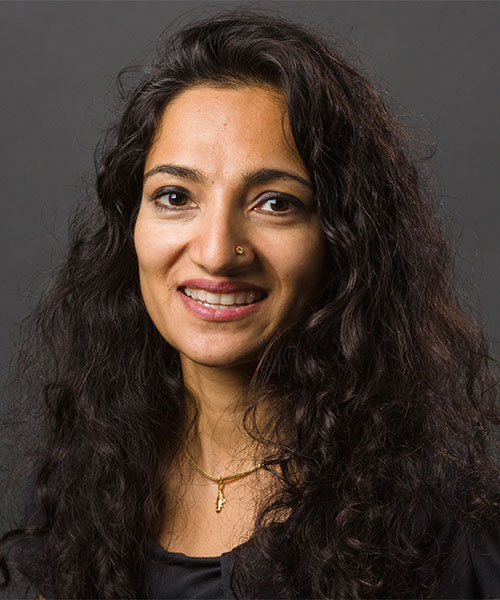
Smita Krishnaswamy
Yale Univ.
Deep geometric and topological analyses characterizing and predicting immune responses
The FASEB Excellence in Science Early-Career Investigator Award recognizes excellence, innovation, leadership, and mentorship of a female early career investigator whose research has contributed significantly to a particular discipline in biological science.
Friday, May 12, 2023 1:45 PM – 2:30 PM Exhibit Hall D, Room 1
56. Exhibitor Workshop: Thermo Fisher Scientific
Ventures Into the Fluorosphere—What Spectral Cytometry Teaches Us About Conventional Cytometry and the Everchanging Topography of the Immunological Landscape
Presenter
- Kim Lueck, R&D Scientist, Protein & Cell Analysis
High dimensional full spectrum flow cytometry grants access to previously unattainable parameters in cellular immunology. However, spectral cytometry comes with its own idiosyncrasies and unique constraints. In this tutorial, we take a deep dive into a broadly focused human immunophenotyping panel with over 30 parameters to highlight some of the special features and potential pitfalls of spectral panel design. A demonstration of how such a panel can be adapted to deeply focus on specific immune cell subpopulations will also be presented.
Friday, May 12, 2023 1:45 PM – 2:30 PM Exhibit Hall D, Room 2
57. Exhibitor Workshop: BioLegend
Modulating Levels of Cell Surface CD6 Regulates Effector T Cell Activity and Treg Development
Presenter
- Jeanette Ampudia, Associate Director, Immunology and Research Operations
CD6 is a co-stimulatory receptor that is highly expressed on the surface of proinflammatory Teff cells, whereas it is expressed at low levels on anti-inflammatory Treg cells despite similar levels of CD6 mRNA. Not only does this make CD6 an interesting target for suppression of autoreactive Teff cells, it also suggests a role in controlling Treg cell function. Recent data suggest that modulation of this receptor may be important to regulating autoimmunity. Equillium is developing itolizumab, a clinical stage humanized anti-CD6 monoclonal antibody that modulates cell surface levels of CD6 by instigating cleavage of the receptor via a membrane bound serine protease, for the treatment of autoimmune conditions. Previously, it was thought that itolizumab only inhibited Teff activity, while leaving the Treg population unaffected. However, we have recently shown that treatment of naïve T cells with itolizumab to remove CD6 results in Tregs with better stability and function as indicated by a higher frequency of FoxP3+Helios+ double positive cells and increased suppression of Teff cells. These data suggest that reduced levels of cell surface CD6 associated with itolizumab treatment improve Treg function and Treg:Teff ratios in patients with autoimmune and inflammatory diseases.
Friday, May 12, 2023 1:45 PM – 2:30 PM Exhibit Hall D, Room 3
58. Exhibitor Workshop: Alamar Biosciences
Expanding the Limits of Immune Profiling with Automated, Highly-Sensitive, Multiplexed Analysis
Presenters
- Alex Forrest-Hay, VP of Sales, Introducing NULISA™ and the ARGO™ System, a Fully-Automated, Ultra-high Sensitivity Platform for Liquid-based Protein Analysis
- Xiao-Jun Ma, Ph.D., Chief Technology Officer, Highly-Sensitive and Robust Protein Analysis with 200-plex NULISAseq™ Inflammation Panel
- Susanne Schmidt, PhD, Principal Investigator, University Hospital Bonn, Activation and functional modulation of myeloid cells in SARS‐CoV‐2 infection
Alamar Biosciences provides automated, high-throughput solutions for high sensitivity protein analysis and multiplex capability. Our proprietary NULISA™ Chemistry utilizes a novel sequential capture and release method that significantly reduces background signal and increases the sensitivity and dynamic range compared with standard ELISA or PEA approaches. The NULISA Immuno-Inflammation Panel contains over 200 important markers of immune response enabling comprehensive analysis of immune and inflammatory disease s. The ARGO™ Platform provides a fully-automated workflow with fewer than 30 minutes hands-on time from sample to data, enabling highly reproducible results with CV’s of less than 10%. With both qPCR and NGS readouts, the ARGO™ System enables both focused analysis of validated biomarkers to highly multiplexed profiling of hundreds to ultimately thousands of proteins. This workshop will present data describing the performance of Argo™ system and NULISA™ Assays for cytokine analysis in plasma samples, and demonstrate superior sensitivity and lower limits of detection in comparison to other commercially-available solutions.
Friday, May 12, 2023 2:30 PM – 3:45 PM Booth 5025
Special Activities at the AAI Booth
Visit these special guests at the AAI Booth (5025) on Friday:
- Meet Immunohorizons Editor-in-Chief Mark H. Kaplan
- Meet with the AAI Membership Committee
- Meet the AAI Public Policy Fellows and discover why YOU should be our next Fellow
Friday, May 12, 2023 2:30 PM – 3:45 PM Exhibit Hall D
Poster Session
59. Adaptive Immunity to Viruses
60. B Cells in Immunity
61. Barrier Inflammation and Repair
Basic Autoimmunity
62. Big Data and Tumor Immunology
63. Cancer, Skin, Neurology and Immunology
64. CD4+ T Cells
65. Developing Your Bloody Immune System
66. Diet/Microbiome and Metabolites in Health
67. Hyper Airways
68. Immune Checkpoint Blockade and CAR T Cell Therapy for Cancer Treatment
69. Immune Responses in the Urogenital Tract
70. Inflammation during Disease
71. Innate Immune Responses and Host Defense: Cellular Mechanisms I
72. Innate Immune Responses and Host Defense: Cellular Mechanisms II
73. LATE BREAKING: Innate Immune Responses and Host Defense: Cellular Mechanisms
74. LATE BREAKING: Vaccines and Immunotherapy
75. Innate Immunity and Mechanisms of Viral Sensing
76. Lymphocyte Fate, Maintenance, and Activation I
77. Metabolic and Gut Microbiota Effects on Autoimmunity
78. LATE BREAKING: Basic Autoimmunity
79. Metabolic and Migratory Pathways of Leukocytes in Inflammation
80. LATE BREAKING: Cellular Adhesion, Migration, and Inflammation
81. Microbial, Parasitic, and Fungal Immunology I
82. Microbial, Parasitic, and Fungal Immunology II
83. Molecular Mechanisms of Lymphocyte Responses
84. Myeloid Cells in Cancer Hosts I
85. Novel Therapeutic Targets for Controlling Immune Responses and Dampening Inflammation
86. Regulation of Protective T Cell Immunity in Cancer
87. T Cell Regulation
88. The Tumor Microenvironment: Mechanisms of Tumor Growth and Metastasis
89. The Tumor Microenvironment: Novel Immune Checkpoints and Mechanisms of Immune Suppression
Friday, May 12, 2023 3:45 PM – 5:45 PM Room 101
90. International Complement Society (ICS) Symposium
Location Matters: The Evolving Roles of Cell-autonomous and Local Complement
Chairs
- Ben Afzali, NIDDK, NIH
- Marcela Pekna, Univ. of Gothenburg, Sweden
Speakers
- Niki M. Moutsopoulos, NIDCR, NIH, Innate immunity and the oral mucosa
- Markus Bosmann, Boston Univ., Take a breath: local complement in lung pathologies
- Marcela Pekna, Univ. of Gothenburg, Sweden, C3a receptor signaling in neural plasticity and astrocyte-microglia crosstalk after CNS injury
- Brahm H. Segal, Univ. at Buffalo, SUNY, The unexpected contributions of local complement in ovarian cancer
Friday, May 12, 2023 3:45 PM – 5:45 PM Room 207B
91. National Institute of Allergy and Infectious Diseases (NIAID, NIH) Symposium
Improved Tools for Modeling Human Immunity In Vitro and In Vivo—Organoid Cultures and Novel Mouse Models
Chairs
- Joy Liu, NIAID, NIH
- Mark T. Heise, Univ. of North Carolina at Chapel Hill
Speakers
- Mark T. Heise, Univ. of North Carolina at Chapel Hill, Complex genetic architecture underlies regulation of respiratory virus immune responses in the collaborative cross
- Huimin Zhang, Stanford Univ. Med. Sch., Modeling tissue-resident immunity in organoids
- Barbara Rehermann, NIDDK, NIH, Wild mouse microbiota in preclinical models of inflammation and metabolism
- Suhas Sureshchandra, Univ. of California, Irvine, Modeling human adaptive immune responses with tonsil organoids
- Paolo Casali, UT Health, San Antonio, Long Sch. of Med., Construction of mice with a fully human immune system mounting class-switched, hypermutated, and neutralizing antibody response
Friday, May 12, 2023 3:45 PM – 5:45 PM Room 102AB
92. National Institute of Arthritis and Musculoskeletal and Skin Diseases (NIAMS, NIH) Symposium
Somatic Mutations in Non-malignant Diseases
Chairs
- Peter C. Grayson, NIAMS, NIH
- Bhavisha A. Patel, NHLBI, NIH
Speakers
- Heather E. Machado, Sanger Inst., U.K., Mutational landscapes in human lymphocytes
- Peter C. Grayson, NIAMS, NIH, Somatic mutations in rheumatology: VEXAS syndrome and beyond
- Bhavisha A. Patel, NHLBI, NIH, Somatic mutations in benign hematologic diseases
Friday, May 12, 2023 3:45 PM – 5:45 PM Room 202A
93. Block Symposium
Being Schooled: New Strategies for Immunology Education
Chairs
- Heather A. Bruns, Univ. of Alabama at Birmingham
- Raffaella Ghittoni, Univ. of Southern California
Speakers
- Rachel Gerstein, Univ. of Massachusetts Chan Med. Sch., DRIVE: Diversity, Representation, and Inclusion for Value in Education—interprofessional faculty development for a bias-free curriculum at UMass Chan Medical School
- Heather A. Bruns, Univ. of Alabama at Birmingham, Assessment of factors that impact the quality and penetrance of immunology into the curriculum at the secondary education level in Alabama
- Jastaranpreet Singh, Univ. of Toronto, Canada, Bridging statistics and life sciences education for immunologists: Exploring significantly impactful teaching strategies and collaborations
- Michelle Snyder, Towson Univ., Results from a CURE course project reveal novel insights into the structure of bacterial Toll/interleukin-1 receptor (TIR) domain proteins
- Crystal C. Walline, Univ. of North Carolina at Pembroke, Smart textbooks and LMS-integrated digital tools incentivize student engagement and facilitate learning in an undergraduate immunology course
- Raffaella Ghittoni, Univ. of Southern California, Meta-lecture: the educational experience of reversed roles
- Pascale Alard, Univ. of Louisville, Jedi mindset: discussing wffective learning strategies with students
Friday, May 12, 2023 3:45 PM – 5:45 PM Room 209ABC
94. Block Symposium
Food Allergy, Atopic Skin, and Mast Cells
Chairs
- Adrian Piliponsky, Seattle Children's Res. Inst.
- Rebecca Martin, Virginia Commonwealth Univ. Sch. of Med.
Speakers
- Lauren A. Hesser, Univ. of Chicago, A single species bacterial therapy reduces type 2 immune responses in the gut to prevent food allergy
- Julia Johnston, NIAID, NIH, Identification of the novel human serine protease σ-tryptase: a gene fusion product at TPSB2
- Irina Miralda Molina, Seattle Children's Res. Inst., Dedicator of cytokinesis 8 (DOCK8) is a negative regulator of skin mast cell function
- Tamara Haque, NIAID, NIH, Cell-intrinsic effects of TGF-b signaling in mast cell effector function that modulate allergic inflammation
- Heather L. Caslin, Vanderbilt Univ., Weight cycling may induce lipid handling in mast cells
- Rahul Sharma, NHLBI, NIH, BLOC1S1: an unexpected regulator of Th2 cell-driven inflammatory responses
- Timothy C. Borbet, New York Univ. Sch. of Med., Loss of microRNA-29 in B cells leads to atopic skin phenotype in mice
- Matthew Zellner, Virginia Commonwealth Univ., B1-like B cells derived from the bone marrow and not fetal-derived B1 B cells are responsible for the protective IgE induced in helminth infection
Friday, May 12, 2023 3:45 PM – 5:45 PM Room 206
96. Block Symposium
Immune Responses in the Respiratory Tract
Chairs
- Jacob Kohlmeier, Emory Univ. Sch. of Med.
- Yee Ling Wu, Loyola Univ.
Speakers
- Marco Künzli, Univ. of Minnesota, Iteratively stimulated T cells as tools to understand mechanisms of nonlymphoid recirculation
- Kimberly Oliva, Univ. of Georgia, Regulation of respiratory CD8+ T cell immunity by suppressive monocyte-like dendritic cells
- Jorna Sojati, Univ. of Pittsburgh Sch. of Med., The upper respiratory tract exhibits reduced interferon Response that contributes to limited CD8+ T Cell Recruitment and delayed clearance of human metapneumovirus
- Sarah Michalets, Emory Univ. Sch. of Med., Upper respiratory tract resident memory CD8 T cells limit viral transmission and provide durable protection
- Alexander J. Nelson, Loyola Univ., Allergen inhalation transforms the lungs into a permissive environment for local IgE responses
- Bruna de Gois Macedo, Mayo Clin., Lung pathogenic, P2RX7-dependent CD4+ T cell immune responses to influenza are exacerbated by co-exposure with lung allergens
- Chi Tai, Natl. Taiwan Univ. Col. of Med., Taiwan, Enteric helminth infection confers protection against lethal respiratory influenza virus infection
- Alexander Dale Ethridge, Univ. of Michigan, Respiratory syncytial virus promotes allergic predisposition via gastrointestinal microbiome alteration
Friday, May 12, 2023 3:45 PM – 5:45 PM Room 209ABC
95. Block Symposium
Halt! Regulation of Lymphocyte Signaling
Chairs
- Andrew Snow, Uniformed Serv. Univ. of the Hlth. Sci.
- Patricia Gearhart, NIA, NIH
Speakers
- Stormy Elizabeth Ruiz, NIA, NIH, Establishing novel and unique technology to uncover how Activation-Induced Deaminase specifically targets immunoglobulin regions
- Tiffany K. Ybarra, Univ. of Iowa, Mechanisms of TRAF3 regulation of TLR signaling in B lymphocytes
- Deborah Yablonski, Technion, Israel, Gads is differentially required for the thymic development of conventional and innate-like T cells
- Kumarkrishna Raychaudhuri, NCI, NIH, Kinetic regulation of TCR activation as a potential mechanism for CD28 co-stimulation
- Justin Boxuan Zhang, Monash Univ., Australia, Re-evaluating the role of coreceptor: LCK association in T cell receptor signalling
- Bradly M. Bauman, Uniformed Services Univ. of the Hlth. Sci., Dominant interfering CARD11 variants disrupt JNK signaling in T cells and impaired CARD11-JNK signaling increases expression of GATA3
- Thomas H. Mann, Salk Inst. for Bio. Studies, Discovery of a molecular clock that controls CD8+ T cell function and exhaustion
- Akshaya Balasubramanian, Geisel Sch. of Med., Dartmouth Col., An old dog with "new" tricks: the MDR1 transporter in T cell-mediated immunity
Friday, May 12, 2023 3:45 PM – 5:45 PM Room 201
97. Block Symposium
Molecular Regulation of Innate Immunity
Chairs
- Lu Huang, Univ. of Virginia
- Sarah Ewald, Univ. of Virginia
Speakers
- Clinton J. Bradfield, NIAID, NIH, Biphasic JNK signaling reveals distinct MAP3K complexes licensing inflammasome formation and pyroptosis
- Michael Reginald Pitter, Univ. of Michigan, PAD4 controls the anti-tumor response by fine-tuning IFNγ signaling in macrophages
- Alvina Deka, Natl. Inst. of Immunology, India, A noncanonical NF-kB - β-catenin signaling axis in dendritic cells instructs gut inflammation
- Katherine Camille Barnett, Univ. of North Carolina at Chapel Hill, Bi-directional epithelial-immune communication amplifies inflammasome activation and IL-6 release during SARS-CoV-2 infection
- Zachary T. Peters, Dartmouth Col., Immune checkpoint VISTA regulates DNA sensing and repair pathways that contribute to type I interferon (IFN-I) production in the skin
- Savita Devi, Cedar Sinai Med. Ctr., CARD-only proteins (COPs) inhibit uric acid crystal-induced inflammasome activation and ameliorate gout
- Hemant Joshi, Washington Univ. in St Louis Sch. of Med., Mechanical signaling regulates NLRP3 activation in macrophages
Friday, May 12, 2023 3:45 PM – 5:45 PM Room 207A
98. Block Symposium
Myeloid Cells in Cancer Hosts II
Chairs
- Stanley Huang, Case Western Reserve Univ.
- Weiping Zou, Univ. of Michigan Med. Sch.
Speakers
- Jiajia Zhou, Univ. of Michigan Med. Sch., STAT3 restrains dendritic cell function and tumor immunity
- Arya Biragyn, Natl. Inst. on Aging, Cancer promotes immune escape via transdifferentiating B cells into macrophage-like cells
- Michelle A. Tran, Icahn Sch. of Med. at Mount Sinai, Unraveling myeloid cell-mediated mechanisms of resistance to immune checkpoint blockade in bladder cancer
- Ziyan Zoe Xu, Salk Inst. for Biol. Studies, Scavenger receptor CD36 regulates inflammatory and type-I interferon responses in tumor-associated macrophages
- Thejaswini Giridharan, Roswell Park Comprehensive Cancer Ctr., Neutrophils in the tumor microenvironment (TME) induce T cell non-responsiveness characterized by a shift from proliferation and activation to lipid transport pathways
- Melissa Romain Bonner, Case Western Reserve Univ., PIEZO1 deletion in CD11b+ cells suppresses rhabdomyosarcoma tumor rejection and generates a tumor-permissive immune landscape
Friday, May 12, 2023 3:45 PM – 5:45 PM Room 204ABC
99. Block Symposium
T Cells in Cancer: From Memory to Exhaustion
Chairs
- Hazem Ghoneim, Ohio State Univ. Wexner Med. Ctr.
- Zihai Li , Ohio State Univ. Comprehensive Cancer Ctr.
Speakers
- Delaney E. Ramirez, Geisel Sch. of Med., Dartmouth Col., Temporal requirements for TGF-β and IL-7 in generating resident memory T cell responses to melanoma
- Sierra A. Kleist, Geisel Sch. of Med., Dartmouth Col., Investigating the source of viral-specific memory T cells in glioblastoma
- Anwesha Kar, Indian Inst. of Chemical Bio., India, CD38-cADPR axis mediated chronic Ca2+ signaling promotes the differentiation of TCF1lo terminal exhausted CD8+ T cells in tumor
- Tong Xiao, James Comprehensive Cancer Ctr., Ohio State Univ., Novel mechanisms of androgen receptor-centered transcriptional regulatory network in regulating CD8+ T cell exhaustion and sex bias in cancer
- Xin Lan, St. Jude Children's Res. Hosp., Exhausted CD8 T cell progenitors are sustained with TCR engagement during anti-tumor responses
- Hannah Dada, NCI, NIH, Effect of mechanical cues on T cell killing of cancer cells
- Amir Yousif, Ohio State Univ. Col. of Med., Targeting epigenetic crosstalk that restrains the responses of exhausted T cells to immune checkpoint blockade therapy
- Emilia Rae Dellacecca, Mayo Clin., DUSP2 functions as a negative regulator of cytotoxic T cell responses in cancer immunotherapy
Friday, May 12, 2023 4:30 PM – 5:30 PM Ballroom AB
100. AAI-BD Biosciences Investigator Award Presentation and Lecture
Generously supported by BD Biosciences
AAI President Mark M. Davis and Robert Balderas, Vice President of Bio. Sci., BD Biosciences, will introduce the awardee and present the award immediately prior to Dr. Sonnenberg’s lecture.
Chair
- Akiko Iwasaki, HHMI, Yale Sch. of Med., AAI Vice President
Award Recipient
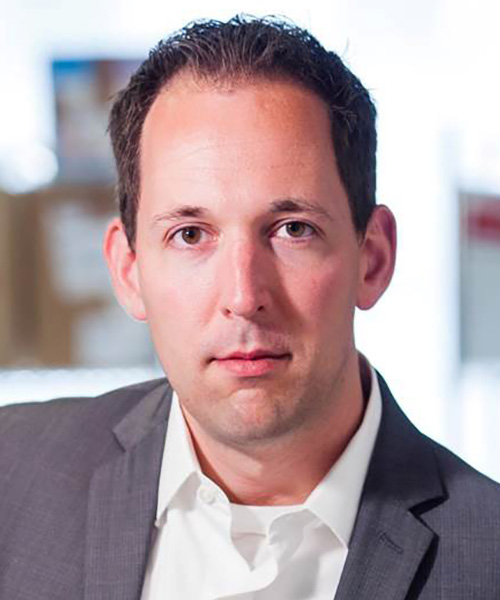
Gregory F. Sonnenberg
Weill Cornell Med.
Innate regulation of immunity, inflammation, tolerance, and cancer
The AAI-BD Biosciences Investigator Award recognizes an early-career investigator who has made outstanding contributions to the field of immunology.
Friday, May 12, 2023 6:00 PM – 6:45 PM Ballroom AB
101. Distinguished Lecture—Douglas R. Green
Generously supported by BD Biosciences
Chair
- Cathryn R. Nagler, Univ. of Chicago, AAI Program Committee Chair
Speaker
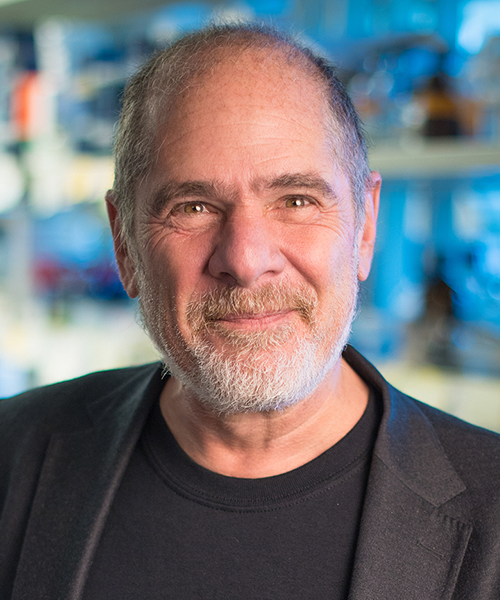
Douglas R. Green
St. Jude Children’s Res. Hosp.
Start me up: early events in T cell activation influence long-term cell fate
Friday, May 12, 2023 7:00 PM – 8:00 PM Ballroom AB
102. Pandemic Preparedness and Response: Lessons from COVID-19
Speaker
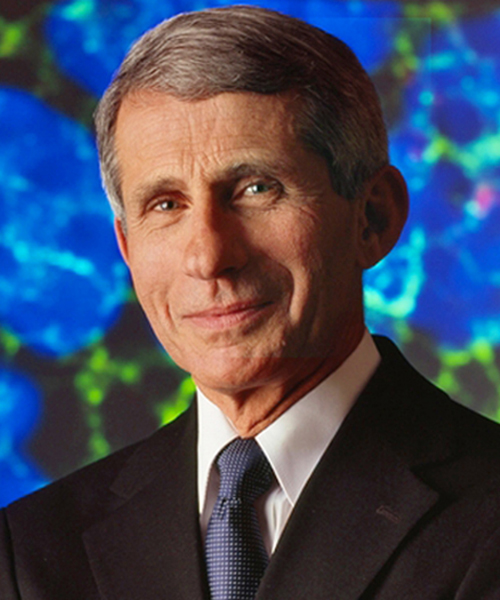
Anthony S. Fauci
Former Director, NIAID, NIH
Mark M. Davis
HHMI, Stanford Univ. Sch. of Med., AAI President
Introduction
AAI is delighted to welcome Anthony S. Fauci, M.D., DFAAI (AAI ’73), to deliver this important and timely plenary lecture. Dr. Fauci, who recently stepped down from his position as director of the National Institute of Allergy and Infectious Diseases after 38 years, is the former chief medical advisor to President Joseph R. Biden Jr.
Friday, May 12, 2023 7:45 PM – 10:00 PM
AAI Journals Editorial Dinner and Meeting
By invitation only
Generously supported by KnowledgeWorks Global Ltd.
Generously supported by KnowledgeWorks Global Ltd.
By invitation only
Friday, May 12, 2023 8:15 PM – 9:45 PM
Minority Affairs Committee (MAC) Social Hour
Sponsored by the AAI Minority Affairs Committee
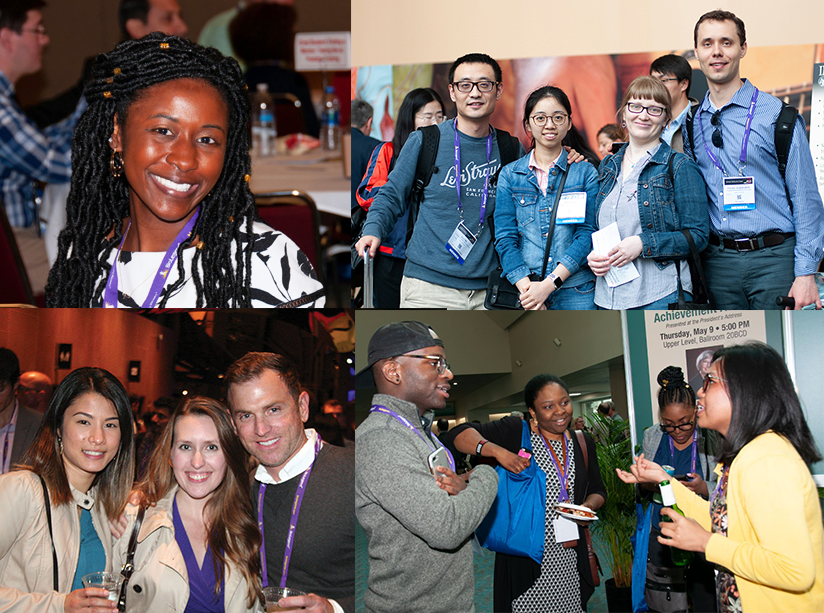
One of the most important and meaningful aspects of the annual meeting is connection! The MAC Social Hour is an evening gathering for participants in the annual MAC Careers Roundtables session to reconvene for relaxed, informal networking. Soft drinks and hors d’oeuvres will be served.
(Badge and invitation are required. Invitations will be issued to meeting attendees registered to attend the MAC Careers Roundtables and Speed Networking Session.)
